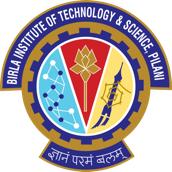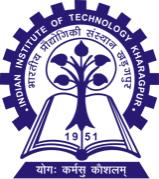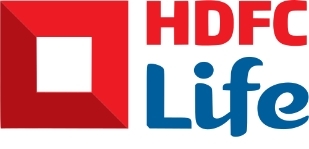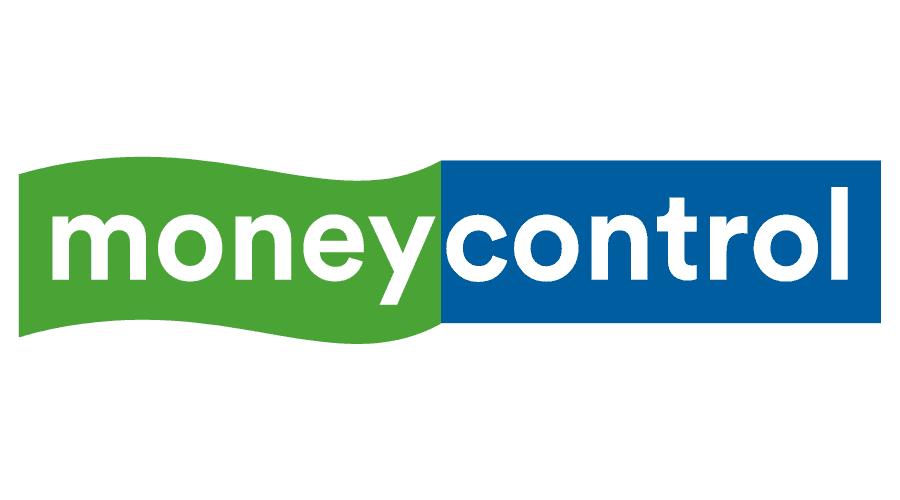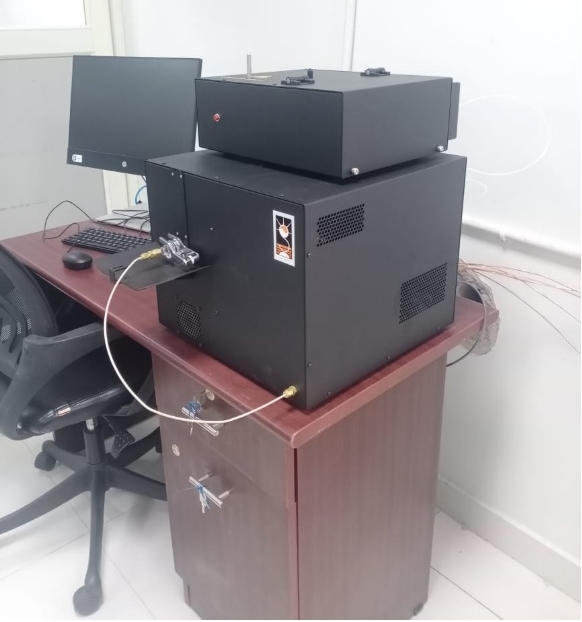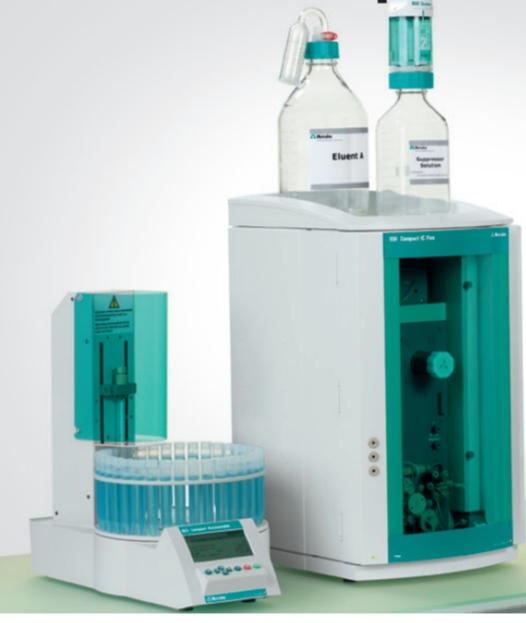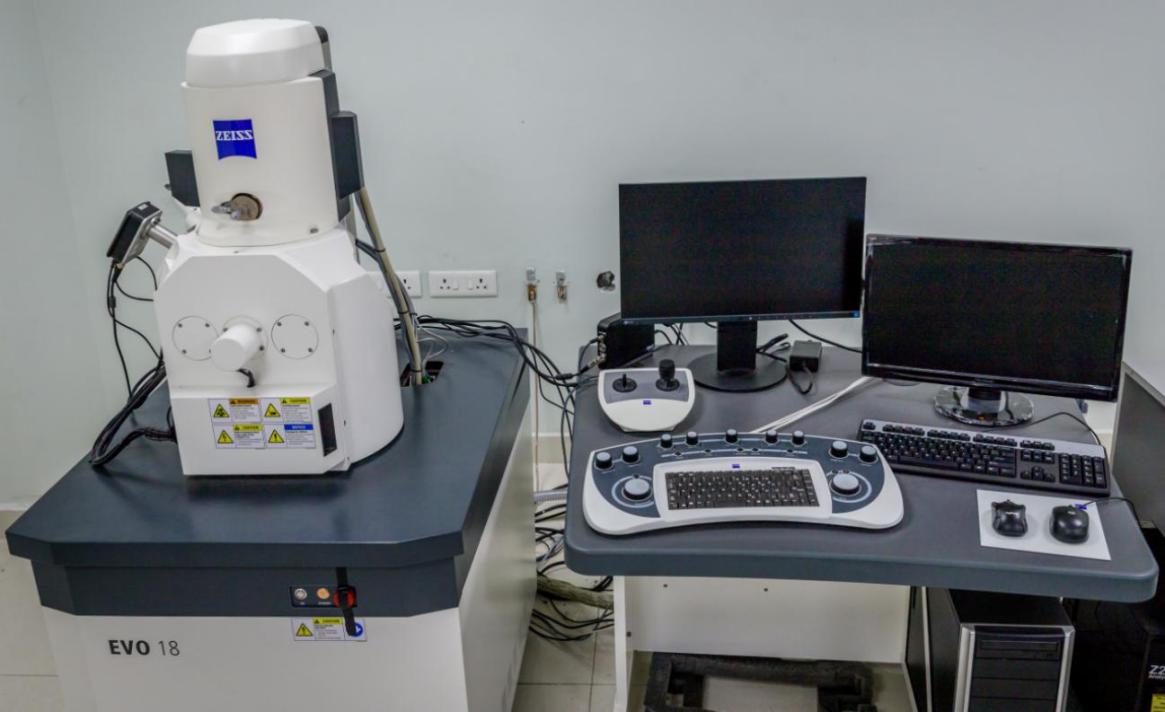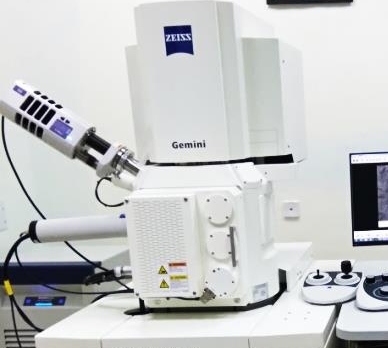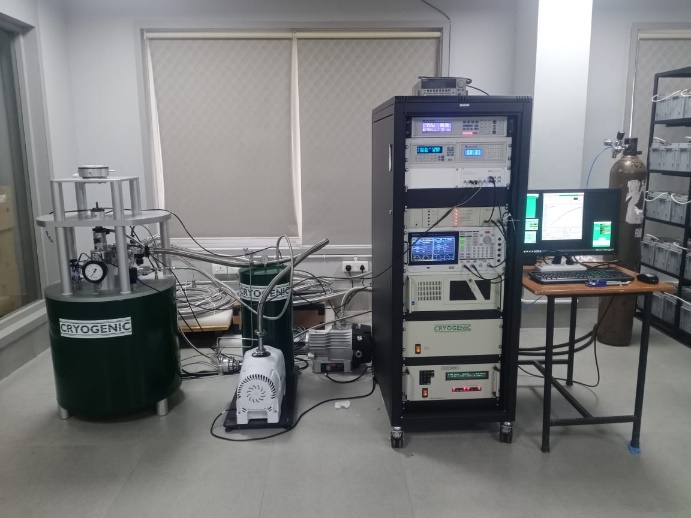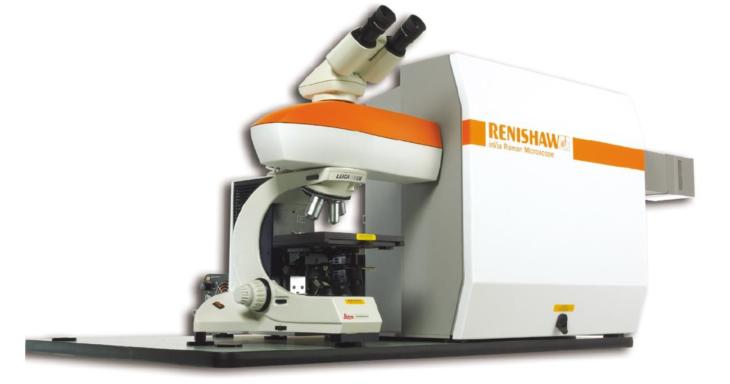StandardOperatingProcedure (SOP)
[SubmissionofInventionDisclosurefor PatentandCopyrightFiling, Publishing and Granting]
Purpose
To define the standard procedure for submitting invention disclosures for the purpose of filing patents and copyrights, ensuring proper protection and commercialization of intellectual property.
Scope
Applicable to all faculties, researchers, staff, and students involved in research and development projects that may lead to patentable inventions or copyrightable works within KIIT Deemed to be University, Bhubaneswar.
Definitions
- Internal Inventor: Any individual affiliated with KIIT Deemed to be University, who has owned the invention or creative work.
- External Inventor: Any individual not affiliated with KIIT University, who has contributed intellectually to the invention or creative work.
- Joint Ownership: Intellectual property owned by both KIIT and externalentities as pertheirrespective contributions and applicable
- Invention Disclosure: A confidential document describing an invention, submitted to the Intellectual Property (IP) Cell for
- Patent: Legalprotectiongranted for new inventions thatare novel, non-obvious, and industrially applicable.
- Copyright: Protection for original literary, artistic, and scientific works including software, books, and multimedia content.
- IPR Centre: The institutional body or team responsible for IP management and technology transfer.
- Collaboration Agreement: A formal Memorandum of Understanding (MoU), Memorandum of Agreement (MoA), or project contract that governs IP ownership and rights in joint
- Applicant: Kalinga Institute of Industrial Technology Deemed to be University, Bhubaneswar remains as the Applicant for each and every patent/copyright filing.
Responsibilities
- Internal Inventor(s): Prepare and submit the invention disclosure form (FORM_IDF-I).
- External Inventor(s) (if any): Cooperate indisclosure and provide necessary documentation.
- IPRCoordinator(Schoollevel)(ifapplicable):Reviewand approve the FORM_IDF-I before submission.
- REC Member (School level) (if applicable): Endorse the
- IPRC:Evaluate,process,andinitiatefilingofpatentor
Procedure
Step1:PreparationofInventionDisclosure
- Internal inventor(s) to fill the Invention Disclosure Form
(FORM_IDF-I)including:
- Complete listof all inventors (internal and external)
- Affiliationand contact details of external inventor(s)
- Fundingsource or project details (if applicable)
- Collaborationagreement reference (if any)
- Clearlystate the intellectual contribution of each
- Providedetailed information including:
- Titleof the invention/work
- Namesand affiliations of inventors/authors
- Detaileddescription of the invention/work
- Noveltyand inventive steps
- Priorart and how the invention differs
- Dateof invention and research funding sources
- Potentialapplications and commercial value
- Anypublications or public disclosures made or planned
- Obtainthe following from external inventor(s) before submission:
- SignedInventor “No Objection Certificate” (FORM_IDF- III)
- Letter of consent from their institution or employer (if required)
- Copy of MoU/MoA/Non-Disclosure Agreement (NDA) (if existing)
- If no agreement exists, IPRC will coordinate drafting a Joint IP Ownership Agreement.
- For student inventors, there must be inclusion of one or more mentor inventors (faculties) in the FORM_IDF-I & FORM_IDF- II.
- Step 2: Internal Approvals
- Getthe FORM_IDFs reviewed, agreed and signed by:
- Allinventors/authors (internal & external)
- IPRCoordinator (School level)
- RECMember (School level) (if applicable)
- Step 3: Submission to IPRC
- Submit the completed FORM_IDF-I [preferably MS word format], II, III and other related documents separately to:
- Email:[email protected] (or designated email)
- Retain copies of all the submitted documents for future requirements.
- Step 4: Preliminary Review by IPRC
- IPRCchecks for:
- Completeness ofthe disclosure as per IPRC policy requirements.
- Inventorcontributions and applicant
- Possibleprior
- Suitabilityfor patent/copyright
- Mayconsult external experts or patent attorneys as
- Decidewhether KIIT-DU will proceed as lead filing institution or joint applicant.
- Step 5: Filing Process
- Basedon evaluation:
- Patent Filing: IPRC initiates drafting of patent application with registered patent agent (Attorneys) and coordinates with the inventors.
- Copyright Filing: IPRC facilitates copyright registration for eligible works.
- IPRC files application with appropriate attribution and ownership structure (e.g., joint ownership or KIIT as applicant with mention of external contributors)
- IPRC manages filing with appropriate IP offices (e.g., Indian Patent Office or Copyright Office).
- Step 6: Post-filing Obligations
- All inventors must support examination, updates, and commercialization efforts based on the instructions provided by IPRC from time to time.
- IPRC manages communication with the Attorneys, IP Office and external parties.
- Revenue sharing and commercialization terms are governed by the Joint Ownership Agreement or institutional IP Policy.
Key Considerations
- Confidentiality: all disclosures must be treated as confidential by both KIIT and external collaborators.
- Timeliness: disclosure should be submitted before any public disclosure or publication.
- Publications: joint publications should be coordinated after IP
- Dispute Resolution: any disputes over contribution or ownership are resolved per the governing collaboration agreement or IPPolicy of KIIT.
- Grant of patent: depends on the patentability report (Novel/Not Novel/Patentive/Not Patentive) provided by the Attorneys after thorough checking after publication of the patent.
Mandatory Documents
- InventionDisclosure Form (FORM_IDF-I)
- InventorDeclaration Form (for all inventors) (FORM_IDF-II)
- NoObjection Certificate (for all external inventors if any) (FORM_IDF-III)
- MoU/MoA/NDA/CollaborationAgreement (if applicable)
- JointIP Ownership Agreement (if not already existing)
BEST PRACTICES IN RESEARCH
Student Support
Conference Support (UG/PG)
- Rs 15,000/ per student per academic year
- Applicable once per academic. Student must be First Year, Faculty mentor as Corresponding Author
- Faculty should have directly supervise the students research.
PhD Scholar Support
Fellowship
Rs 25,000/- per month for 2024 admitted batch for regular PhD scholar
2021-2024 batches upon research progress evaluation
Contingency Grant
Rs 60,000/- per year from 2nd year onwards (for unto 3 years)
Research Summit Awards
Top 30 posters selected at KIIT Research Summit 2025 will receive conference funding for one year.
FACULTY SUPPORT
Rs 25,000/- per year for domestic conferences
Rs 1,00,000/- for international conferences (Once 2 years)
Open Access Publication Support
KIIT DU has made agreements with leading publishers such as Taylor & Francis, F1000, and IEEE to provide open-access publishing opportunities for our faculty members. This initiative is aimed at encouraging high-quality research and enhancing the academic reputation.
To support this initiative, the University will bear 75% of the Article Processing Charge (APC) for the first publication, while the faculty member (as the 1st or corresponding author) will contribute 25%.
SCHOOL LEVEL RESEARCH FACILITY
The Thin Film Photovoltaics laboratory
(https://electronics.kiit.ac.in/Labs/thin-film-photo-voltaic-lab/)
The Thin Film Photovoltaics laboratory is dedicated to provide next-generation high-performance thin-film solar cells, sensors and optoelectronic devices and applications for affordable energy-sustainable future with the aim to provide impactful solutions for the benefit to industry and society. Currently, the demand for solar energy is gaining interest and a lot of research work is going on to provide cost-effective, environment-friendly thin-film solar cells. This lab supports a multipurpose and interdisciplinary working environment not only for the research but different collaborative activities also. The focus of this lab is to develop and characterize low-cost earth-abundant thin-film solar cells through efficient vacuum and non-vacuum-based technologies. In this lab, we continually strive to acquire and intelligently apply the resources to support the research community to advance in the PV field. Current activities of the laboratory cover a broad spectrum, ranging from fundamental research to industrial technology transfer.
COIRs
COIR on Quantum Computing
1.Objective of the COIR
To drive innovation and scientific breakthroughs in quantum computing, secure communication, and superconducting quantum hardware, aligning with India’s National Quantum Mission and international quantum advancement efforts.
2.Goals
Short-Term Goals (1–2 Years):
Establish state-of-the-art infrastructure and laboratories.
Initiate foundational research in quantum chip design and secure communication.
Launch educational programs (B.Tech, M.Tech, PG Diploma).
Begin national/international collaborations.
Long-Term Goals (3–5+ Years):
Achieve global recognition as a quantum technology hub.
Contribute significantly to India’s quantum economy.
Lead industry-consortia for quantum hardware/software co-design.
Drive high-impact publications, patents, and technology transfers.
3.Labs and Facilities : No labs
4.Research Areas
Quantum Computing & Algorithms
Secure Quantum Communication
Quantum Cryptography & Post-Quantum Security
Quantum Sensing & Metrology
Quantum Machine Learning
Quantum Materials & Photonics
Quantum Networks & Teleportation
5.Ongoing Projects
Post Doc in Quantum Computing under School of Computer Engineering (Approved By MeitY Visvesvaraya PhD Scheme)
6.Published IPs (Patents/Designs): NA
7.Brief CVs of Individual Members
Dr. Sutanu Mangal
Associate Professor
School of Applied Sciences (Physics)
Dr. Sutanu Mangal completed his Ph.D. from the Indian Institute of Technology, Kharagpur in 2011. During his doctoral studies, he was awarded a European Union Fellowship by the Ministry of University, Government of Italy, to support his research on semiconductor device fabrication for photovoltaic applications. His Ph.D. work involved the successful deposition of III-V semiconductor layers and quantum structure such as InGaP, GaAs, and InP quantum dot and quantum well using Metal-Organic Chemical Vapor Deposition (MOCVD). After completing his Ph.D., Dr. Mangal joined KIIT University in 2011 as a faculty member in the School of Applied Sciences. He later pursued postdoctoral research at Academia Sinica in Taipei, Taiwan, where he specialized in low-energy single- electron microscopy for imaging Quantum 2D materials.
At KIIT, Dr. Mangal’s primary research focuses on semiconductor thin film deposition and device fabrication, with applications in photovoltaics and sensors. His research group is currently making significant strides in quantum based 2D perovskite solar cell technology, achieving remarkable efficiency and scientific advancements in the field.
Dr. Anjan Bandyopadhyay
Assistant Professor
School of Computer Engineering
Dr. Anjan Bandyopadhyay is an Assistant Professor-II at the School of Computer Engineering, KIIT University, Bhubaneswar, India. He holds a Ph.D. from the National Institute of Technology (NIT) Durgapur, specializing in Algorithmic Mechanism Design with applications in Cloud and Fog Computing. He did his M.Tech from NIT Durgapur. His research interests include Algorithmic Game Theory, Edge Computing, Quantum Computing, Metaverse, and Healthcare Technologies. Dr. Bandyopadhyay has published 93 research papers, edited a book, and received multiple best paper awards. He is also the principal investigator of a ₹1.45 crore funded project under the MEiTY Visvesvaraya PhD Scheme. Additionally, he has 15 patents and design projects to his credit. His work has been recognized through various awards, including achievements by his students in national and international competitions. He actively contributes to academia through research supervision, conference presentations, and collaborations with international institutions.
Publications: 1. Thapa S, Bandyopadhyay A, Gourisaria MK, Singh S, Patra SS. Securing Mobile Adhoc Network with Quantum Key Distribution: An Experimental Analysis. In2024 4th International Conference on Sustainable Expert Systems (ICSES) 2024 Oct 15 (pp. 357-362). IEEE.
2.Thapa S, Bandyopadhyay A, Ghosh D, Sahoo B, Sharma A, Gourisaria MK. Integrating Quantum Metaheuristics with Stackelberg Game and Auction Mechanism for Cooperative Data Clustering in Adhoc Networks. In2024 International Conference on Integrated Intelligence and Communication Systems (ICIICS) 2024 Nov 22 (pp. 1-7). IEEE.
3.Turjya SM, Singh R, Sarkar P, Swain S, Bandyopadhyay A. Quantum-Based QKD and Sugar-Salt Encryption Approach in Cloud-Fog Computing to Strengthen Protection of Online Banking Data. In2024 IEEE International Conference on Information Technology, Electronics and Intelligent Communication Systems (ICITEICS) 2024 Jun 28 (pp. 1-7). IEEE.
4.Kundu S, Bandyopadhyay A, Bhattacharjee A. Mapping of Nearest Neighbor-Based Quantum Circuits into 2D. InBig Data Computing 2024 (pp. 249-265). CRC Press.
Dr. Arighna Deb
Assistant Professor
School of Electronics Engineering
Arighna Deb (Member, IEEE) received the Ph.D. (Engineering) degree from the Jadavpur University, Kolkata, India, in 2017, and the Dr.rer.nat. degree from the University of Bremen, Bremen, Germany, in 2018. He is currently an Assistant Professor with the School of Electronics Engineering, KIIT Deemed To Be University, Bhubaneswar, India. From 2014 to 2016, Dr. Deb was a Guest Researcher at the University of Bremen, Germany, supported by the European Union's Erasmus Mundus Scholarship program. His current research interests include the design automation for quantum computing, and in-memory computing architecture for AI/ML applications.
List of Publications (on Quantum Computing only)
Conferences:
- Kole, Arighna Deb, K. Datta, R. Drechsler, Dynamic Realization of Multiple Control Toffoli Gate. Proc. of the Design, Automation & Test in Europe Conference (DATE), Valencia, Spain, March 25-27, 2024, pp. 1-6, 10.23919/ DATE58400.2024.10546695.
- Kole, Arighna Deb, K. Datta, R. Drechsler, Extending the Design Space of Dynamic Quantum Circuits for Toffoli based Network, Proc. of the Design, Automation & Test in Europe Conference (DATE), Antwerp, Belgium, April 17-19, 2023, pp. 1-6, 10.23919/ DATE56975.2023.10137250.
- Arighna Deb, G. W. Dueck, R. Wille, Towards Exploring the Potential of Alternative Quantum Computing Architectures, Proc. of 23rd IEEE Design, Automation & Test in Europe Conference (DATE), Grenoble, France, March 9-13, 2020, pp. 682–685, 23919/ DATE48585.2020.9116507.
- Arighna Deb, D. K. Das, Detailed Fault Model for Physical Quantum Circuits, Proc. of 28th IEEE Asian Test Symposium (ATS), Kolkata, India, December 10-13, 2019, pp. 153 – 158, 1109/ ATS47505.2019.00028.
- Arighna Deb, R. Wille, R. Drechsler, D. K. Das, An Efficient Reduction of Common Control Lines for Reversible Circuit Optimization, Proc. of 45th IEEE International Symposium on Multiple-Valued Logic (ISMVL), Waterloo, Canada, May 18-20, 2015, pp. 14-19, 1109/ ISMVL.2015.26.
- Arighna Deb, D. K. Das, H. Rahaman, B. B. Bhattacharya, Reversible synthesis of symmetric Boolean functions based on unate decomposition, Proc. of ACM Great Lakes Symposium on VLSI (GLSVLSI), Paris, France, May 2-4, 2013, pp. 351-352, https:// doi.org/ 10.1145/ 2483028.2483138.
- Arighna Deb, D. K. Das, S. Sur-Kolay, Modular Design for Symmetric Functions Using Quantum Quaternary Logic, Proc. of IEEE International Symposium on Electronic System Design (ISED), Singapore, December 10-12, 2013, pp. 143-147, 1109/ ISED.2013.35.
- Arighna Deb, D. K. Das, H. Rahaman, B. B. Bhattacharya, R. Wille, R. Drechsler, Reversible Circuit Synthesis of Symmetric Functions Using a Simple Regular Structure, Proc. of 5th International Conference on Reversible Computation (RC), Victoria, Canada, July 4-5, 2013, pp. 182-195, https:// doi.org/ 10.1007/978-3-642-38986-3_15.
Journals:
- Arighna Deb, G. W. Dueck, R. Wille, Exploring the Potential Benefits of Alternative Quantum Computing Architectures, IEEE Transactions on Computer-Aided Design of Integrated Circuits Systems (IEEE TCAD), vol. 40(9), pp. 1825-1835, 2021, 1109/ TCAD.2020.3032072.
- Mondal, Arighna Deb, D. K. Das, An Efficient Design for Testability Approach of Reversible Logic Circuits, Journal of Circuits, Systems and Computers, vol. 30(6), pp. 2150094:1-2150094:31, 2021, https:// doi.org/10.1142/ S0218126621500948.
- Arighna Deb, D. K. Das, H. Rahaman, R. Wille, R. Drechsler, B. B. Bhattacharya, Reversible Synthesis of Symmetric Functions with a Simple Regular Structure and Easy Testability, ACM Journal on Emerging Technologies in Computing Systems (JETC), vol. 12 (4), pp. 34:1–34:29, 2016, https:// doi.org/ 10.1145/ 2894757.
- Arighna Deb, G. W. Dueck, R. Wille, Exploring the Potential Benefits of Alternative Quantum Computing Architectures, IEEE Transactions on Computer-Aided Design of Integrated Circuits Systems (IEEE TCAD), vol. 40(9), pp. 1825-1835, 2021, 1109/ TCAD.2020.3032072.
- Mondal, Arighna Deb, D. K. Das, An Efficient Design for Testability Approach of Reversible Logic Circuits, Journal of Circuits, Systems and Computers, vol. 30(6), pp. 2150094:1-2150094:31, 2021, https:// doi.org/10.1142/ S0218126621500948.
- Arighna Deb, D. K. Das, H. Rahaman, R. Wille, R. Drechsler, B. B. Bhattacharya, Reversible Synthesis of Symmetric Functions with a Simple Regular Structure and Easy Testability, ACM Journal on Emerging Technologies in Computing Systems (JETC), vol. 12 (4), pp. 34:1–34:29, 2016, https:// doi.org/ 10.1145/ 2894757.
Dr. Rakesh Mohan Das
Assistant Professor
School of Applied Science
Dr. Rakesh Mohan Das joined KIIT in 2022 and is currently working as Assistant Professor in the Department of Physics, School of Applied Sciences. His current research interest lies in quantum optics, quantum computing and quantum information, atomic, molecular, and optical physics, and observational astronomy. He earned his five years integrated MSc. degree in Physics from IIT Kanpur, after cracking the IIT-JEE 2006. Following this, he served as an IT consultant at Polaris Software Labs, Chennai for a year. In 2012, he ventured to Japan to pursue a Ph.D. at the Institute of Advanced Energy, Kyoto University, supported by the Monbukagakusho fellowship program. During his doctoral studies, he focused on atomic, molecular, and optical physics, collaborating with J-PARC, one of the world's largest proton accelerator facilities. He was also involved with small business firms based in Osaka in app development for two years. In 2019, he completed his PhD and returned to India. He was a short-term visiting fellow at NISER, Bhubaneswar after which he joined Utkal University as a postdoctoral researcher funded by RUSA, Govt. of India. He has more than five years of teaching experience and three years of corporate industrial exposure. Currently, he is working on theoretical aspects of continuous variable quantum systems and understanding their quantum entanglement properties. Also, he is working in the development of quantum enhanced algorithms for scheduling applications which involve various NP-hard and NP-complete problems.
Publication:
Naik, L. P., Das, R. M., & Panigrahi, P. K. (2024). “Stronger epr-steering criterion based on inferred schrödinger–robertson uncertainty relation.”, Scientific Reports, 14(1), 420. https://doi.org/10.1038/s41598-023-50029-z.
Dr Lalatendu Biswal
Associate Professor
School of Applied Science
Dr Lalatendu Biswal began his career in education as a lecturer in Physics in August 1993 in Karanjia College, Karanjia, Mayurbhanj, Odisha and has taught Physics for last 31 years. He joined to faculty position in Department of Physics, School of Applied Sciences, KIIT Deemed to be University in July 2010, and currently serving in position of Associate Professor. He holds his PhD degree from Sambalpur University. He is teaching quantum mechanics paper to MSc students since last 6 years. He has introduced Quantum Computing open elective paper for 6th semester B.Tech students and teaching the same paper since last four years, getting very good response. Some of students from his quantum computing classes are currently doing their master and PhD courses in national universities and abroad. He has authored more than 30 research papers in journals of high repute and actively engaged in current research on Theoretical and Experimental Condensed Matter Physics.
Dr. Pratyusa Mukherjee
Assistant Professor
School of Computer Engineering
Dr. Pratyusa Mukherjee is currently working as an Assistant Professor in School of Computer Engineering, KIIT Deemed to be University, Bhubaneshwar, Odisha. She completed her Ph.D from KIIT in the year 2022. Her M.Tech is in Information Technology from Indian Institute of Engineering Science and Technology (IIEST), Shibpur. She stood fifth in entire Maharashtra, first in Vidarbha Region and first in Nagpur City in her CBSE X Board Examinations. Her research area includes Information Security, Blockchain Technology and Quantum Cryptography.
Publication: P. Mukherjee and R. Kumar Barik, "Fog-QKD:Towards secure geospatial data sharing mechanism in geospatial fog computing system based on Quantum Key Distribution," 2022 OITS International Conference on Information Technology (OCIT), Bhubaneswar, India, 2022, pp. 485-490, doi: 10.1109/OCIT56763.2022.00096.
Dr Sujata Swain
Assistant professor
School of Computer Engineering
Dr. Sujata Swain received her B.Tech. degree in Computer Science and Engineering from BPUT University India. She also received her M.Tech. and Ph.D. in Computer Science and Engineering from the Indian Institute of Technology Roorkee, India. She is an Assistant Professor in the School of Computer Science and Engineering, Kalinga Institute of Industrial Technology, Deemed to be University, Bhubaneswar. Her research interests include Service Oriented Computing, Metaverse, Medical Imaging, and Healthcare Systems, Game Theory and Quantum Computing.
Publication:Turjya SM, Singh R, Sarkar P, Swain S, Bandyopadhyay A. Quantum-Based QKD and Sugar-Salt Encryption Approach in Cloud-Fog Computing to Strengthen Protection of Online Banking Data. In2024 IEEE International Conference on Information Technology, Electronics and Intelligent Communication Systems (ICITEICS) 2024 Jun 28 (pp. 1-7). IEEE.
Our Advisors
Arun Kumar Pati
Arun Pati is a Professor at Center for Quantum Engineering, Research and Education (CQuERE), TCG CREST, Kolkata. Before this, he was Head of Center for Quantum Science and Technology at IIIT, Hyderabad and spent several years at Harish-Chandra Research Institute (HRI), Allahabad, Institute of Physics, Bhubaneswar and BARC, Mumbai.
Professor Pati has been working on Quantum computing and Quantum Information for last 35 years. In the past, he has received the Indian Physical Society Award for Young Scientists, Kolkota, Indian Physics Association Award for Young Physicist, Mumbai, Samanta Chandra Sekhar Award from the Odisha Science Academy, India and the Distinguished Alumni award from Berhampur University Odisha. He is elected Fellows of the Indian Academyof Science, Bangalore and National Academy of Science, Allahabad. He is also a J C Bose National Fellow. He figures in No 1 position as World’s Famous Quantum Information scientists and Father of Indian Quantum Computing.
Siddhartha Bhattacharyya
Dr. Siddhartha Bhattacharyya did his Bachelors in Physics, Bachelors in Optics and Optoelectronics and Masters in Optics and Optoelectronics from University of Calcutta, India in 1995, 1998 and 2000 respectively. He completed PhD in Computer Science and Engineering from
Jadavpur University, India in 2008. He is the recipient of the University Gold Medal from the University of Calcutta for his Masters. He is the recipient of several coveted awards including the Distinguished HoD Award and Distinguished Professor Award conferred by Computer Society of India, Mumbai Chapter, India in 2017, the Honorary Doctorate Award (D. Litt.) from The University of South America and the South East Asian Regional Computing Confederation (SEARCC) International Digital Award ICT Educator of the Year in 2017. He has been appointed as the ACM Distinguished Speaker for the tenure 2018-2020. He has been inducted into the People of ACM hall of fame by ACM, USA in 2020. He is currently the Principal of Rajnagar Mahavidyalaya, Birbhum, India. Before this, he served as a Professor in the Department of Computer Science and Engineering of Christ University, Bangalore. He served as the Principal of RCC Institute of Information Technology, Kolkata, India during 2017-2019. He has also served as a Senior Research Scientist in the Faculty of Electrical Engineering and Computer Science of VSB Technical University of Ostrava, Czech Republic (2018-2019). Prior to this, he was the Professor of Information Technology of RCC Institute of Information Technology, Kolkata, India. He is a co-author of 5 books and the co-editor of 75 books and has more than 300 research publications in international journals and conference proceedings to his credit. He holds three patents. Dr. Bhattacharyya is a life fellow of Optical Society of India (OSI), India, life fellow of International Society of Research and Development (ISRD), UK, a fellow of Institution of Engineering and Technology, UK, a fellow of Institute of Electronics and Telecommunication Engineers (IETE), India and a fellow of Institution of Engineers (IEI), India. He is also a senior member of Institute of Electrical and Electronics Engineers (IEEE), USA. His research interests include soft computing, pattern recognition, multimedia data processing, hybrid intelligence, social networks, and quantum computing.
8.Group Photos :NA
- List of PhD Scholars : NA
- Collaborations
National: NISER, IIIT Hyderabad, IITs
- Partner Industries : NA
Scope of Work
Faculty: Lead research, mentor PhDs, publish, organize training.
PhD Scholars: Conduct funded projects, contribute to core research areas.
Post-Doc Scholars: Implement advanced quantum applications.
Industry: Co-develop products, access testbeds, host internships.
- MOUs and Outcomes
(Pending MOU summary required. Mention anticipated outcomes: internships, tech transfer, course development, joint publications.)
15.Impact
a.Society:Quantum-secured communication and national data integrity empower citizens and foster trust in digital interactions. Educational outreach also helps reduce the urban-rural tech divide.
b.Academia:Through interdisciplinary research and advanced degree programs, COIR enhances India’s academic contribution in quantum sciences.
c.Industry:Supports secure data solutions, optimization tools, and quantum-inspired ML algorithms, enabling smarter, safer industrial systems.
d.Economy:Reduces dependence on foreign quantum solutions. Offers indigenous innovation in logistics, finance, and telecom, potentially saving millions.
e.Nation:Positions India as a quantum leader. Contributes to defence, space, and healthcare through secure, scalable, next-gen quantum systems.
- Academic/Training Programs
B.Tech in Quantum Computing and Information Science:
Introduces quantum theory and its computing applications. Prepares students with practical and theoretical skills for academia and industry careers in quantum technology.
M.Tech in Quantum Computing and Technology:
Focuses on hardware/software co-design, communication security, and algorithm optimization. Enables hands-on research in emerging areas.
Ph.D. in Quantum Science and Technology:
Encourages original research in core and applied quantum areas. Prepares scholars for academic excellence and high-impact industry contributions.
1-Year PG Diploma in Quantum Computing:
For professionals seeking rapid upskilling in quantum programming, cryptography, and simulator usage for applied research.
17.Research Outcome Matrix
1.Publications
2.Citations
3.Patents
4.Industry Utilized IPs
- Prototypes Developed
(Pending update – mention simulation-based chip designs and ongoing QKD prototype development; TRL status: 3–4)
- Knowledge/Technology Transferred
(If any tech has been transferred, please provide registration ID, abstract, and transfer URL)
- Social Responsibility
COIR promotes inclusive STEM education through public lectures, webinars, and student outreach. The center actively engages rural and underprivileged students via quantum science workshops.
- Point of Contact
Dr. Anjan Bandyopadhyay
Assistant Professor-II, School of Computer Engineering
Email: [email protected]
Phone: +91-9064167515
Webpage Content Preparation for CIRAI Sections on KIIT Website
1.Objective of the CIRAI
KIIT University’s CIRAI stands as a beacon of innovation and excellence in the realm of artificial intelligence. As a dynamic hub for cutting-edge research and interdisciplinary collaboration, the centre is dedicated to nurturing AI-skilled talent through state-of-the-art education and training. By fostering transformative research and facilitating robust industry partnerships, CIRAI not only prepares graduates for an AI-first job market but also propels impactful solutions that address global challenges. This initiative underscores our commitment to elevating KIIT’s international reputation and positioning Odisha at the forefront of the AI revolution. The proposed CIRAI will serve as a multidisciplinary platform to bring together researchers, educators, industry professionals, and students to explore and innovate in AI. The centre will focus on:
Research and Development:Conducting fundamental and applied research in AI, data science, machine learning, deep learning, generative AI such as large language models, diffusion models, and related fields.
Education and Training:Offering specialized courses, workshops, and certifications to build AI competencies among students and professionals.
AI events and Expert Talks:Periodically organize competitions, hackathons, events in tech fests and Olympiads to encourage students. Invite world class researchers to visit the deliver Expert Talk on various topics in AI.
Industry Collaboration:Partnering with leading companies and startups to work on real-world problems and innovative solutions.
International Collaboration:Engaging with global universities and research institutions for collaborative research, student exchange programs, and joint projects. Collaboration with foreign AI established researchers and promising local startups.
Innovation and Entrepreneurship:Encouraging and supporting AI-based startups and entrepreneurial ventures through incubation and mentorship programs.
Organize Conferences, Promotion and Attract Talent:Indians have achieved tremendous success by conducting pioneering research, receiving outstanding paper awards and leading critical projects in major AI companies abroad. The CIRAI center will bring some of the top conferences to Odisha.
2.Goals – Both Short-Term and Long-Term:
Implementation Roadmap:
Phase I: Planning and Infrastructure Setup (Months 1-6)
- Finalize the proposal and secure funding.
- Establish governance structure and appoint key personnel.
- Develop detailed architectural plans for the center.
- Begin the procurement of computational resources and lab equipment.
Phase II: Research and Industry Collaboration Initiation (Months 7-18)
- Set up initial research labs and computational facilities.
- Launch AI research projects and collaborate with faculty, students, across departments.
- Initiate partnerships with industry and international research institutions.
- Organize workshops, seminars, and conferences to build awareness and foster collaboration.
Phase III: Expansion and Growth (Months 12-36)
- Expand research focus areas based on initial successes and emerging trends.
- Enhance industry partnerships and increase funding through grants and collaborations.
- Develop and introduce new AI-focused academic programs and certifications.
- Scale up incubation programs for AI startups and entrepreneurial ventures.
Phase IV: Consolidation and Sustained Impact (Months 12-60)
- Review progress and refine focus areas based on outcomes and global trends.
- Strengthen the center's infrastructure and expand facilities as needed.
- Continue to grow the network of collaborators and industry partners.
- Sustain and enhance the center’s impact through continuous innovation, research, and education.
3.Labs and Facilities – detailed descriptions with high-quality images:
To support the activities of the CIRAI, the following infrastructure and resources will be established:
Computational Facilities: High-performance computing clusters with GPUs (H100/H200/A6000) for large-scale AI research and development.
Research Labs: State-of-the-art laboratories equipped with AI development tools, software, and hardware for various applications, including robotics and automation.
Data Repositories: Secure and scalable data storage systems for managing large datasets required for AI research.
Collaboration Spaces: Dedicated areas for interdisciplinary collaboration, brainstorming, and innovation, including co-working spaces and meeting rooms.
Learning and Development Facilities: Classrooms, seminar halls, and digital learning platforms to conduct workshops, training sessions, and courses.
Access to Industry Tools and Platforms: Partnerships with leading technology companies to provide access to cutting-edge AI tools, platforms, and cloud resources.
4.Research Areas:
Machine Learning, Deep Learning, Generative AI: The CIRAI will drive the development of advanced machine learning models, embracing self-supervised and multimodal techniques to learn from diverse data with minimal supervision. By exploring next-generation architectures, including neuro symbolic, concept models, the centre aims to deliver scalable, efficient models that push the boundaries of predictive analytics, natural language processing, and computer vision for a future where AI is more accessible and energy efficient.
Generative AI, Including LLMs and Diffusion Models: The CIRAI will pioneer generative AI technologies that leverage large language models and diffusion techniques to create high-quality text, images, and multimedia content. By focusing on real-time AI creativity and hyper-personalized content generation, the centre will enable new forms of interactive digital experiences, transforming how media is produced and consumed while ensuring that such innovations remain safe, interpretable, and user-focused.
Industrial IoT (Internet of Things): Exploring the integration of AI with IoT to develop smart, connected systems that enhance efficiency, automation, and decision-making in various domains such as smart homes, industrial automation, agriculture, and healthcare. The focus will be on leveraging AI to process and analyze the massive amounts of data generated by IoT devices to enable real-time insights, predictive maintenance, and intelligent control systems.
AI for Healthcare: Utilizing AI to improve diagnostics, personalized medicine, healthcare management, and robotic-assisted surgeries. The CIRAI will utilize AI to transform healthcare, enhancing precision medicine, diagnostics, and patient management. Future-ready initiatives include AI-driven drug discovery, genomics integration, and autonomous diagnostic systems that leverage real-time data and robotic-assisted surgeries, ensuring more personalized and effective treatments while preparing the healthcare system for global health challenges.
AI for Automation, and Management: The CIRAI will explore AI-driven hyper automation to streamline processes in manufacturing, logistics, and smart environments. By integrating robotic process automation and autonomous systems with human-centric oversight, the centre will enhance operational efficiency and decision-making in smart cities and businesses, ensuring that advanced automation works in tandem with human expertise to optimize workflows.
AI for Sustainable Development: The CIRAI will apply AI to combat environmental challenges by advancing climate modeling, optimizing renewable energy production, and promoting circular economies. Through real-time analytics and digital twins, AI will support sustainable agriculture, biodiversity conservation, and resource management, driving a future where technology actively contributes to reducing carbon footprints and protecting the planet.
Human-Centered AI: The CIRAI will prioritize the development of ethical, transparent, and accountable AI systems that align with human values. Focusing on explainability, fairness, and robust regulatory frameworks, the center will ensure that AI augments human creativity and decision-making while addressing potential biases and societal impacts, making AI a trustworthy partner in our evolving digital landscape.
AI in Finance, Marketing and Business Analytics: The CIRAI will enhance financial modeling, risk management, and business intelligence through advanced AI techniques. By leveraging real-time data analytics, decentralized finance models, and AI-driven forecasting, the center aims to empower smarter decision-making in finance and business, ensuring that AI innovations drive more secure, efficient, and adaptive financial ecosystems.
5.Ongoing Projects
| Project Name | Funding Agency | Amount (INR) in Lakhs |
| Machine Unlearning for Selective Removal of Digital Data Footprint from Deep Learning Models | SERB/ANRF | 30.5 |
| AutoImage: Automatic Measurement of wafer dimensions at nano scale level using computer vision (Smart factory automation) | SAE Magnetics HK Industrial Grant | 250.0 |
6.Published IPs – selective and high-quality entries
- Suman Bhattacharya, Speech processing system and method for recognizing speech samples from speaker with oriyon accent when speaking English, no. 9390085, filled: 13 March 2013, granted: 12 july 2016, TCS
- Parui S (2024), AI Based Voice To Text Conversion Device. U.K Patent No. 6405546, Intellectual Property Office, Uk
- Parui S (2024), AI Enabled Computing Device For Detection Of Alzheimer’s Disease. U.K Patent No. 6417427, Intellectual Property Office, Uk
- Parui S (2024), AI Based Health Monitoring Wearable Device. U.K. Patent No. 6396855, Intellectual Property Office, Uk
- Parui S (2024), AI Based Driver Drowsiness Detecting Device. U.K. Patent No. 6376103, Intellectual Property Office, Uk
- Parui S (2024), AI Based Device For Online Learning. U.K. Patent No. 6381805, Intellectual Property Office, Uk
- Parui S (2024), AI Based Plant Health Monitoring Device. U.K. Patent No. 6387412, Intellectual Property Office, Uk
- Parui S (2024), Computer Based Iris Detection Device For Biometric Authentication. U.K. Patent No. 6394223, Intellectual Property Office, Uk
- Parui S (2024), Wireless Medical Appliance Controlling Device. U.K. Patent No. 6379400, Intellectual Property Office, Uk
- Parui S (2024), Health Monitoring Wearable Device. Patent No. 202416642, Commonwealth Of Australia
- Parui S (2024), AI Based Device For Image Encryption And Decryption. India Patent No. 438370-001, Intelectual Property Of India
- Parui S (2024), AI-Based Organic Waste Composter. India Patent No. 433386-001, Intellectual Property Of India
- Parui S (2024), AI Based Signature Verification Device. India Patent No. 431371-001, Intellectual Property Of India
- Parui S (2024), AI-Powered Predictive Maintenance System For Industrial Iot Devices. India Patent No. 202431093292, Intellectual Property Of India
- Parui S (2024), Iot Based Water Purification Device. India Patent No. 424039-001, Intellectual Property Of India
- Parui S (2024), AI Enabled Farm Environment Monitoring Device. India Patent No. 424437-001, Intellectual Property Of India
- Parui S (2024), AI-Powered Predictive Maintenance System For Industrial Iot Devices. India Patent No. 202431093292, Intellectual Property Of India
- Parui S (2024), AI Based Cyber Security Detecting Device. India Patent No. 427237-001, Intellectual Property Of India
- Parui S (2024), Machine Learning-Driven Intrusion Detection System For Secure Wireless Networks Using Blockchain. India Patent No. 202421053201, Intellectual Property Of India
- Rajdeep Chatterjee, India Patent No. 202331035150 A, Intellectual Property Of India
- Usage Of Iot In Machine Learning Built On Block-Sparse Coding For Accurate Device-Free Localization, Subhra Debdas
- Zigbee Based Solar Powered Forest Fire Detection And Control System, Subhra Debdas
- An Iot Based Smart System To Read The Ecg And Alert The Consultant In Case Of Emergencies, Subhra Debdas
- An Experiment Special Technology In Emergency Management And Disaster Response For Human World, Subhra Debdas
- A Zigbee-Based Interconnected Electrical Vehicle Battery Condition Monitoring System, Subhra Debdas
- Artificial Intelligence-Based Prediction And Prevention Of Kidney Disease Using Machine Learning Algorithms For Healthcare Management, Subhra Debdas
- Iot Based System And Design Approach For Health Monitoring Of Wearable Devices, Subhra Debdas
- Battery Management System For Detecting Fault In The Electric Vehicle Battery, Subhra Debdas
- An Iot-Enabled Notification System Management For Farmers, Subhra Debdas
- Iot-Based Product Stock Management System For Profitable Product Brand, Subhra Debdas
- Wireless Charger For Portable Applications, Subhra Debdas
- A Method And System To Analyze The Tumor Recognition Based On Iot And Ai Image Processing, Subhra Debdas
- A Smart System For Air Quality Monitoring And Detect Forest Fires Using The Internet Of Things, Subhra Debdas
- Thermal Screening system and method, Pampa Sinha
- An IOT based Power Quality Analyzing system for rectifying fault in an electrical distribution system, Pampa Sinha
- Miniature Quarter Mode Substrate Integrated Waveguide Filter For Radio Frequency Communication. Ganaraj P S
7.Brief CVs of Individual Members – along with one high-resolution photo each:
Prof (Dr) Suman Bhattacharya has 26+ years in AI, Speech Technology, NLP, and Machine Learning. He holds leadership roles at KIIT and KISS University, currently serving as Director of Kareer School and Next-Gen Learning at KIIT. With 15+ years at TATA Group and TCS, he excels in IT services and AI-powered product development. He also advises on innovation, mentors tech startups, and guides 50,000+ students. Dr. Bhattacharya holds a PhD in Computer Science, six patents, 47 research publications, and has served on several academic boards.
Dr. Sutanu Mangal earned his Ph.D. from IIT Kharagpur in 2011 and received a European Union Fellowship for his work on semiconductor device fabrication using MOCVD. After joining KIIT University as a faculty member, he completed postdoctoral research at Academia Sinica in Taiwan on low-energy single-electron microscopy for 2D materials. His research focuses on semiconductor thin film deposition and device fabrication for photovoltaics and sensors, including advancements in perovskite solar cells. He also serves as Assistant Registrar and is a member of KIIT University's Academic and Executive Councils.
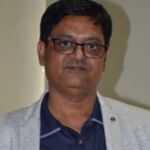 Dr. Suresh Chandra Satapathy is a Ph.D. in Computer Science Engineering and serves as Professor and Dean of Research at KIIT University. A former National Chairman of Educational and Research for the Computer Society of India and a senior IEEE member, he has organized 60+ international conferences and edited over 80 book volumes. His research spans Swarm Intelligence, Machine Learning, Data Mining, and Cognitive Sciences, and he developed the Social Group Optimization and Social Evolution and Learning Algorithm. With more than 150 publications and several keynotes, he holds editorial roles in various journals and is a visiting professor at multiple international universities.
Dr. Suresh Chandra Satapathy is a Ph.D. in Computer Science Engineering and serves as Professor and Dean of Research at KIIT University. A former National Chairman of Educational and Research for the Computer Society of India and a senior IEEE member, he has organized 60+ international conferences and edited over 80 book volumes. His research spans Swarm Intelligence, Machine Learning, Data Mining, and Cognitive Sciences, and he developed the Social Group Optimization and Social Evolution and Learning Algorithm. With more than 150 publications and several keynotes, he holds editorial roles in various journals and is a visiting professor at multiple international universities.
 Dr. Murari Mandal did his PhD from MNIT Jaipur. He was a Postdoctoral Fellow at NUS with Prof. Mohan Kankanhalli, and I earned Bachelor's in Computer Science from BITS Pilani in 2011. He currently leads the RespAI Lab at KIIT Bhubaneswar where we explore machine unlearning, LLM and diffusion model alignment, reasoning, and AI safety. His work has appeared in top conferences like ICML, KDD, AAAI, ACM MM, and CVPR. He is a pioneer in the field of Machine Unlearning with his paper being the top 5 most cited Unlearning papers in the world. He is indexed in CSRankings.
Dr. Murari Mandal did his PhD from MNIT Jaipur. He was a Postdoctoral Fellow at NUS with Prof. Mohan Kankanhalli, and I earned Bachelor's in Computer Science from BITS Pilani in 2011. He currently leads the RespAI Lab at KIIT Bhubaneswar where we explore machine unlearning, LLM and diffusion model alignment, reasoning, and AI safety. His work has appeared in top conferences like ICML, KDD, AAAI, ACM MM, and CVPR. He is a pioneer in the field of Machine Unlearning with his paper being the top 5 most cited Unlearning papers in the world. He is indexed in CSRankings.
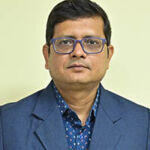 Dr. Subhra Debdas is an accomplished academic and industry expert in Electrical Engineering with over 23 years of teaching experience. With a strong professional background, he has worked as a design power engineer at DCPL and L&T Sargent & Lundy, handling major projects globally. He has also served for eight years at the University of Technology and Applied Sciences, Muscat Oman. Currently, he is an Associate Professor at KIIT Deemed to be University, specializing in smart grids, Industry 4.0, IIoT and Cloud Computing.
Dr. Subhra Debdas is an accomplished academic and industry expert in Electrical Engineering with over 23 years of teaching experience. With a strong professional background, he has worked as a design power engineer at DCPL and L&T Sargent & Lundy, handling major projects globally. He has also served for eight years at the University of Technology and Applied Sciences, Muscat Oman. Currently, he is an Associate Professor at KIIT Deemed to be University, specializing in smart grids, Industry 4.0, IIoT and Cloud Computing.
 Dr. Pampa Sinha is an accomplished academician and researcher in the field of Electrical Engineering. Currently serving as an Associate Professor at the School of Electrical Engineering, KIIT Deemed to be University, Bhubaneswar, she specializes in Power Quality Assessment, Power Quality Management, and Energy Storage Devices, Smart Grid, Industry 4.0. Dr. Sinha has published extensively in reputed journals and has two granted Indian patents to her credit. Additionally, she has successfully completed two funded research projects, contributing significantly to advancements in her field.
Dr. Pampa Sinha is an accomplished academician and researcher in the field of Electrical Engineering. Currently serving as an Associate Professor at the School of Electrical Engineering, KIIT Deemed to be University, Bhubaneswar, she specializes in Power Quality Assessment, Power Quality Management, and Energy Storage Devices, Smart Grid, Industry 4.0. Dr. Sinha has published extensively in reputed journals and has two granted Indian patents to her credit. Additionally, she has successfully completed two funded research projects, contributing significantly to advancements in her field.
 Dr. Rajdeep Chatterjee (Senior Member, IEEE) received his B.E. in Computer Science and Engineering degree from The University of Burdwan in 2008, and both the M.Tech. and Ph.D. degrees in Computer Science and Engineering from KIIT Deemed to be University, India in 2011 and 2020, respectively. He also qualified GATE-2008 and KIITEE-2009 with All India Rank 1410 and 1, respectively. He is currently working as an Associate Professor at the School of Computer Engineering, KIIT, India. He is a recipient of the Chester W. Sall Memorial Awards 2023 for the 2nd place from IEEE Consumer Electronics Society.
Dr. Rajdeep Chatterjee (Senior Member, IEEE) received his B.E. in Computer Science and Engineering degree from The University of Burdwan in 2008, and both the M.Tech. and Ph.D. degrees in Computer Science and Engineering from KIIT Deemed to be University, India in 2011 and 2020, respectively. He also qualified GATE-2008 and KIITEE-2009 with All India Rank 1410 and 1, respectively. He is currently working as an Associate Professor at the School of Computer Engineering, KIIT, India. He is a recipient of the Chester W. Sall Memorial Awards 2023 for the 2nd place from IEEE Consumer Electronics Society.
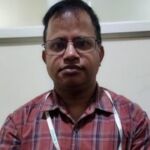 Dr. Ambika Prasad Mishra earned his PhD in Computational Neuroscience from Prestigious City University of Hong Kong (QS Rank 48) and did his postdoctoral studies from the department of Public health from the City University of Hongkong. He studied the role different statistical parameters of sound that brain is interested to capture for distinguishing different sounds in his PhD thesis. He established different CNN based model to predict injuries in race course horses for the Jockey club of Hongkong. He was also associated with Biosignal (HK) as an ML engineer. He is also associated with different organisations as an ML consultant.
Dr. Ambika Prasad Mishra earned his PhD in Computational Neuroscience from Prestigious City University of Hong Kong (QS Rank 48) and did his postdoctoral studies from the department of Public health from the City University of Hongkong. He studied the role different statistical parameters of sound that brain is interested to capture for distinguishing different sounds in his PhD thesis. He established different CNN based model to predict injuries in race course horses for the Jockey club of Hongkong. He was also associated with Biosignal (HK) as an ML engineer. He is also associated with different organisations as an ML consultant.
Dr. Monideepa Roy has been an Associate Professor at KIIT Deemed University, Bhubaneswar for 11 years. She earned her Bachelors and Masters in Mathematics from IIT Kharagpur and her PhD in CSE from Jadavpur University. Her research spans remote healthcare, mobile computing, cognitive WSNs, remote sensing, machine learning, recommender systems, sparse approximations, and neural networks. She has completed a 5-year MeitY project and several short-term projects, mentors seven research scholars (with two PhDs already defended), and has numerous publications. She has also organized major conferences like CINE 2015, 2016, and ICMC 2019, along with various workshops, seminars, and edited publications under Taylor & Francis.
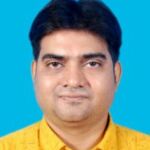 Dr. Ajit Kumar Pasayat is an Assistant Professor at KIIT University, specializing in predictive analytics and data-driven decision-making. He holds an M.Tech and a Ph.D. from IIT Kharagpur. His research interests include machine learning, data analytics, and computational intelligence. With a strong academic background, he has contributed to various publications and projects in these domains.
Dr. Ajit Kumar Pasayat is an Assistant Professor at KIIT University, specializing in predictive analytics and data-driven decision-making. He holds an M.Tech and a Ph.D. from IIT Kharagpur. His research interests include machine learning, data analytics, and computational intelligence. With a strong academic background, he has contributed to various publications and projects in these domains.
Dr. Jyoti Prakash Meher is a recent PhD graduate from the Department of Computer Science and Engineering at the Indian Institute of Technology (IIT) Kharagpur. His research interests lie at the coalescence of machine learning and software engineering, with a deep emphasis on using natural language processing (NLP) techniques to improve code understanding and maintenance, thereby enhancing programmer productivity. Before pursuing his doctoral studies, Dr. Meher gained valuable industry experience as an Automation IT Analyst at Tata Consultancy Services Ltd. for six years. He also holds a master's degree from the National Institute of Technology (NIT) Rourkela.
 Dr. Mainak Biswas, is a computer scientist specializing in machine and deep learning for biomedical applications, particularly in computer-aided diagnosis. He works on advanced ML architectures, early warning systems for CVD risk, and developing new statistical mechanics–based metrics for ML algorithms with over 30 publications and 2000+ citations. He earned his B.Tech from the Government College of Engineering and Ceramic Technology (WBUT, Kolkata), an M.Tech from Jadavpur University, and his PhD from NIT Goa. He is currently an Associate Professor at Kalinga Institute of Industrial Technology.
Dr. Mainak Biswas, is a computer scientist specializing in machine and deep learning for biomedical applications, particularly in computer-aided diagnosis. He works on advanced ML architectures, early warning systems for CVD risk, and developing new statistical mechanics–based metrics for ML algorithms with over 30 publications and 2000+ citations. He earned his B.Tech from the Government College of Engineering and Ceramic Technology (WBUT, Kolkata), an M.Tech from Jadavpur University, and his PhD from NIT Goa. He is currently an Associate Professor at Kalinga Institute of Industrial Technology.
 Dr. Partha Sarathi Paul earned his PhD from the National Institute of Technology Durgapur in February 2021. He subsequently worked as a Post-Doctoral Researcher at IIT Kharagpur and served as a Research Assistant at IIIT Delhi during his PhD. He holds an M.Tech in Computer Science from the Indian Statistical Institute (2003), a Master's in Pure Mathematics (2000), and a Bachelor's with Honors in Mathematics (1998) from the University of Calcutta. His interests include mobile and pervasive networking, disaster management, and human-computer interaction, with current research on socio-mobile applications and mobile computing.
Dr. Partha Sarathi Paul earned his PhD from the National Institute of Technology Durgapur in February 2021. He subsequently worked as a Post-Doctoral Researcher at IIT Kharagpur and served as a Research Assistant at IIIT Delhi during his PhD. He holds an M.Tech in Computer Science from the Indian Statistical Institute (2003), a Master's in Pure Mathematics (2000), and a Bachelor's with Honors in Mathematics (1998) from the University of Calcutta. His interests include mobile and pervasive networking, disaster management, and human-computer interaction, with current research on socio-mobile applications and mobile computing.
Dr. Sakir Ahmed is an Associate Professor of Clinical Immunology and Rheumatology at the KIMS, Bhubaneswar. He is a highly skilled and experienced Rheumatologist and Clinical Immunologist who specializes in the diagnosis and treatment of a range of medical conditions related to the immune system and musculoskeletal system. He holds an MD in Medicine and a DM in Clinical Immunology and Rheumatology, making him one of the most qualified Rheumatologists in India. He has over 13 years of experience in treating patients with arthritis, regional or diffuse pain, unexplained fevers, autoimmune diseases, and immune deficiencies, among other conditions.
 Dr. Sricheta Parui is an assistant professor at KIIT Bhubaneswar. She holds a Ph.D. in Computer Science from Indian Institute of Technology Kharagpur (IIT-KGP). Her research is focused on Artificial Intelligence-based Non-Invasive Brain Signal Processing for Psychophysiological Characteristics Assessment. She did her Master's in Control System Engineering from the Electrical Engineering Department of Jadavpur University (JU), Kolkata, and a Bachelor's in Instrumentation and Control Engineering from Calcutta Institute of Engineering and Management (CIEM), Kolkata.
Dr. Sricheta Parui is an assistant professor at KIIT Bhubaneswar. She holds a Ph.D. in Computer Science from Indian Institute of Technology Kharagpur (IIT-KGP). Her research is focused on Artificial Intelligence-based Non-Invasive Brain Signal Processing for Psychophysiological Characteristics Assessment. She did her Master's in Control System Engineering from the Electrical Engineering Department of Jadavpur University (JU), Kolkata, and a Bachelor's in Instrumentation and Control Engineering from Calcutta Institute of Engineering and Management (CIEM), Kolkata.
Dr. Supriyo Mandal is currently working as an Assistant Professor (II) in School of Computer Engineering, KIIT University, Bhubaneswar. He also worked as a Post-doctoral Research Fellow at ZBW - Leibniz Information Centre for Economics, Kiel University, Germany. He did his Ph.D. at the Department of Computer Science and Engineering, IIT Patna in 2022 and M.Tech from IIEST, Shibpur. His research interest lies in Recommender Systems , E-commerce , Social Network Analysis with Machine learning and Deep learning approach.
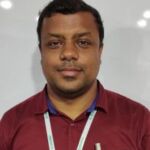 Dr. Prasenjit Maiti is an Assistant Professor at the School of Computer Engineering, KIIT DU, Bhubaneswar. He earned his B.Tech in Computer Science and Engineering from Maulana Abul Kalam Azad University of Technology in 2008 and his M.Tech in Information Technology from IIT Kharagpur in 2013. He has received Visvesvaraya Ph.D. Fellowship from MeitY, Government of India. His research focuses on Fog and Cloud Computing, and machine learning. He has published in high-impact journals and conferences, received a best paper award, and authored two books on Fog Computing.
Dr. Prasenjit Maiti is an Assistant Professor at the School of Computer Engineering, KIIT DU, Bhubaneswar. He earned his B.Tech in Computer Science and Engineering from Maulana Abul Kalam Azad University of Technology in 2008 and his M.Tech in Information Technology from IIT Kharagpur in 2013. He has received Visvesvaraya Ph.D. Fellowship from MeitY, Government of India. His research focuses on Fog and Cloud Computing, and machine learning. He has published in high-impact journals and conferences, received a best paper award, and authored two books on Fog Computing.
 Dr. Manoj Ukamanal is an engineer and academician with expertise in industrial automation and thermal systems. He previously worked as an Analyst Engineer at Tata Consultancy Services, Pune, where he developed multiple automation tools. His research focuses on impingement heat transfer, nanofluids, computational fluid dynamics, hard machining, and thermal system optimization. He has published three international patents and 23 research articles in SCI/SCOPUS-indexed journals and conferences. Currently, he teaches thermal engineering at UG and PG levels while driving innovation in automation and IoT.
Dr. Manoj Ukamanal is an engineer and academician with expertise in industrial automation and thermal systems. He previously worked as an Analyst Engineer at Tata Consultancy Services, Pune, where he developed multiple automation tools. His research focuses on impingement heat transfer, nanofluids, computational fluid dynamics, hard machining, and thermal system optimization. He has published three international patents and 23 research articles in SCI/SCOPUS-indexed journals and conferences. Currently, he teaches thermal engineering at UG and PG levels while driving innovation in automation and IoT.
 Prof. Ganaraj P. S. is an Assistant Professor at the School of Electronics, KIIT Deemed to be University. His research focuses on millimeter-wave filter design and computer vision integration for Connected Autonomous Vehicles and Solar PV modules. With a strong academic and research background, he continues to contribute to advancements in these emerging technologies.
Prof. Ganaraj P. S. is an Assistant Professor at the School of Electronics, KIIT Deemed to be University. His research focuses on millimeter-wave filter design and computer vision integration for Connected Autonomous Vehicles and Solar PV modules. With a strong academic and research background, he continues to contribute to advancements in these emerging technologies.
8.Group Photos – preferably taken in labs or research settings
9.List of PhD Scholars – categorized by research area
10.Collaboration with academic Institution (National and International)
At CIRAI, we believe collaborations and strategic partnerships enable researchers to leverage complementary expertise and shared resources, accelerating innovation and ensuring that findings have a broader real-world impact. By uniting academic, industry, and governmental stakeholders, these alliances foster a dynamic environment that enhances research quality and promotes sustainable growth. CIRAI, offers world class collaborative environment with our team currently working in collaboration with leading researchers National University of Singapore, University of Cambridge, University of South Florida.
10.Partner Industries:
CIRAI is also working in collaboration with several companies on real world AI solutions like SagePilot AI, Aadya AI, Tata teleservices, money control, HDFC life.
12.Scope of works (As a faculty, PhD scholar, post doc scholar, Industry or collaborative Industry: Mention separately)
Opportunities for Students
Advanced Learning: Master both foundational and advanced AI topics through specialized courses and certifications.
Hands-On Research: Work on cutting-edge projects with expert faculty in state-of-the-art labs and computational facilities.
Industry Exposure: Gain practical experience through internships, live projects, and hackathons with leading AI companies.
Networking & Events: Engage with renowned researchers and industry leaders at expert talks, workshops, and AI events.
Entrepreneurial Support: Leverage incubation and mentorship programs to transform innovative ideas into market-ready solutions.
Join CIRAI to build the skills, experience, and network needed to thrive in an AI-driven future.
Opportunities for Industry
CIRAI offers a dynamic platform for industry partners to collaborate with academic experts and innovative startups. Our centre provides industry stakeholders with:
Collaborative Research: Engage in joint R&D initiatives that address real-world challenges, leveraging our state-of-the-art laboratories and expertise in AI.
Talent Pipeline: Access a pool of skilled graduates and emerging talents ready to drive innovation and digital transformation in your organization.
Customized Training & Workshops: Benefit from tailored training programs and workshops designed to enhance your team's AI competencies and strategic capabilities.
Innovation Partnerships: Collaborate on pilot projects, hackathons, and innovation challenges that turn disruptive ideas into scalable, market-ready solutions.
Strategic Networking: Connect with academic leaders, industry experts, and policy makers to forge long-term partnerships that drive sustainable growth and technological excellence.
Partner with CIRAI to accelerate your innovation journey, enhance your competitive edge, and contribute to shaping a future where technology meets real-world impact
13.MOUs (also mention out comes of the MOUs)
14.Impact (Mention the impact created by the centre on a) Society, b) Academics c) Industry d) Economy e)Nation etc (Each in 200 words)
a) Impact on Society
AI for Social Good: CIRAI will spearhead projects aimed at solving pressing social challenges—healthcare access, education, climate resilience, agriculture optimization, and smart governance.
Digital Inclusion: The centre will promote awareness and application of AI tools in rural and underprivileged communities through outreach and training programs.
Improved Quality of Life: By leveraging AI in healthcare diagnostics, smart cities, public service automation, and disaster management, societal well-being will be significantly enhanced.
Ethical AI: CIRAI’s interdisciplinary focus will emphasize responsible AI development, focusing on fairness, transparency, and societal impact.
b) Impact on Academics
Curriculum Transformation: Introduction of cutting-edge courses, hands-on projects, and certifications will prepare students for AI-centric careers.
Research Excellence: The centre will enable faculty and students to publish in top-tier journals and conferences, driving KIIT towards becoming a global research powerhouse.
Skill Development: Through workshops, hackathons, and Olympiads, CIRAI will cultivate practical AI and problem-solving skills.
Collaborative Learning: Exchange programs and joint degrees with global institutions will enrich academic experiences and global exposure.
c) Impact on Industry
Talent Pipeline: CIRAI will serve as a key source of industry-ready AI professionals, addressing the growing skill gap.
Innovation Partner: Industries can co-develop solutions with CIRAI researchers, accelerating product development and reducing R&D costs.
Testbed for Technologies: The centre will offer an environment to prototype and validate AI solutions in real-world conditions before full-scale deployment.
Startup Ecosystem: Through incubation and mentorship, CIRAI will support startups solving industry-specific challenges, fostering a vibrant entrepreneurial culture.
d) Impact on Economy
Job Creation: CIRAI will contribute to high-value job creation in AI development, data science, AI operations, and research.
Attracting Investment: The presence of a world-class AI research centre will draw national and international investments in technology, R&D, and startups in Odisha.
Boost to MSMEs: Local businesses will benefit from AI consultancy, automation strategies, and technology-driven efficiency improvements.
Digital Infrastructure Growth: Increased demand for data centers, cloud infrastructure, and AI hardware will stimulate growth in adjacent sectors.
e) Impact on Nation
AI Leadership: CIRAI will help position India as a global leader in AI innovation, aligning with the National Strategy on Artificial Intelligence (NSAI).
Bridging Regional Gaps: By bringing advanced AI research to Eastern India, CIRAI will contribute to balanced regional development and decentralization of tech growth.
Strategic Autonomy: Homegrown research in large language models, generative AI, and critical AI technologies will reduce dependency on foreign platforms.
Global Recognition: Hosting international conferences and attracting top researchers will elevate India’s image as a hub for frontier AI research and talent.
15.Academic or Training Program: (Mention why the particular academic program is different than the other regular program and what out come is expected by a students after complete the program : Per program 100 words)
The following list of AI oriented courses are to be offered (gradual manner) at CIRAI. The center will keep adding or updating the courses to keep up with the technological changes in the industrial market.
| Foundational Courses | Advanced Courses |
|---|---|
| Introduction to Artificial Intelligence | Deep Learning |
| Machine Learning Fundamentals | Computer Vision |
| Data Science and Statistical Analysis | Reinforcement Learning |
| Programming for AI | AI for Internet of Things (IoT) |
| Mathematics for AI | AI Ethics and Policy |
| Introduction to Generative AI | Diffusion Models and Other Generative Techniques |
| Introduction to Natural Language Processing | Text Generation and Language Models |
| Python for AI Applications | Large Language Models (LLMs) |
| Embedded Systems for Smart IoT Applications | Connected Devices with AWS IoT |
| Cyber Physics for Industrial IoT | Industrial IoT on Google Console |
| Automation 4.0: Integrating IoT | Edge Computing for IIoT Systems |
| Industrial IoT on Google Console |
| Practical and Industry-Focused Courses | Workshops and Seminars |
|---|---|
| Hands-on Projects with Generative Models | Generative AI in Industry |
| Advanced Model Optimization and Deployment for Generative AI | Generative AI Hackathons and Competitions |
| Data Privacy and Security in Generative AI | AWS IoT Solutions Workshop |
| Cloud computing | Embedded IoT Solutions Workshop |
| Industrial Internet of Things | |
| Cyber security | |
| Drone Technology in IIoT | |
| Mainframe Technologies | |
| Embedded Systems for Smart IoT Applications | |
| Robotics and Automation in IIoT |
16.Research out come matrixes: Cumulative project sanction amount & Numbers (both ongoing and completed), Total number of publication & Citation & H-index of the centre & H5-index, Total Patents published, Granted & Utilised in the Industry
17.Total Prototypes developed : Per proto type on going and transferred to the Industry, with TRL rank
18.Knowledge or Technology Transferred : with registration number and link
19.Social Responsibility taken care by the COIR: Max 100 words with some images or video
The Center of Innovation and Research in AI (CIRAI) at KIIT Deemed to be University actively promotes social responsibility by empowering students through initiatives like the Summer Internship Program 2025. This program equips participants with AI skills to address societal challenges, such as healthcare and sustainability, fostering inclusive innovation. CIRAI collaborates with communities to ensure technology benefits underserved groups, aligning with KIIT’s broader mission of social impact through education and outreach. By nurturing socially conscious technologists, CIRAI contributes to equitable development and inspires solutions for real-world issues, enhancing community welfare.
https://www.youtube.com/watch?v=JDLcM-REugc
20.Point of Contact – name, phone number, and email ID
Center of Innovation and Research in AI (CIRAI)
Address: Campus 7, KIIT Deemed to be University, Bhubaneswar, India
Phone: +91-70088 94967
Email: [email protected]
Additionally, please propose the tag line, theme, color scheme, font style and size, and any specific design preferences for your COIR webpage.
Center of Research (COR) for Smart Materials
1.Objective of the COIR
To pioneer the development of advanced materials and technologies that address global challenges through interdisciplinary research and industry collaboration.
2.Goals
Short-Term Goals:
Accelerate material design innovations for specific industrial applications.
Strengthen collaborations with key academic and industrial partners.
Enhance infrastructure and recruit top research talent.
Long-Term Goals:
Become a national center of excellence in material science and technology.
Commercialize multiple breakthrough technologies.
Lead global research in sustainable and functional materials.
3.Labs and Facilities
CNGMT houses cutting-edge research labs including:
Future Materials Lab
Functional Materials Lab
Nanomaterial and Nanosensor Lab
Advanced Materials Lab
Thin Film and Coating Lab
Material & Process Engineering Lab
Key instruments include:
FESEM, AFM, PXRD, NMR, LC-MS, TGA, UV-Vis-NIR, Raman Spectrometer
Thermo Mechanical Simulator (Gleeble 3800)
Servo Hydraulic UTM, EC-OC Analyzer, and more.
High-quality lab images will be included in the website.
4.Research Areas
Nanotechnology and nanostructured materials
Smart, self-healing, and responsive materials
Energy storage and sustainability
Additive manufacturing
Biomedical and bioactive materials
Semiconductor thin films and device fabrication
5.Ongoing Projects
Bromelain-based buccal patch for oral submucous fibrosis (DBT-BIRAC-BIG & ICMR)
MOF-based composite materials for toxicant decontamination (DRDO)
Catalytic CO₂ reduction using MOFs (BRNS)
Hybrid graphene materials with antibacterial applications (ANRF)
6.Published IPs (Selected High-Quality Entries)
Granted: Green synthesis of multicolored fluorescent CQDs (201931044628)
Published: Sanitary napkin incinerator, Novel composite catalyst for dye removal Filed: Rapid COVID-19 test, Intra-oral adhesive bandage, Mucoadhesive buccal patch
7.Brief CVs of Individual Members
Dr. Rojalin Sahu – Professor (Chemistry), PhD IIT Guwahati
Dr. Soumen Dhara – PhD IIT Guwahati, Postdoc in Japan, UK, IISc
Dr. Sutanu Mangal – PhD IIT Kharagpur, MOCVD, Perovskite Solar Cells
Dr. Shanta Chakrabarty – PhD IIT Bombay, Metal-forming, Nanocomposites
Dr. Sudesna Roy – Associate Professor, DST-FIST and SERB projects
Dr. Spandan Guha – PhD Jadavpur University, Graphene Applications
Dr. Ajit Kumar Pasayat – PhD IIT Kharagpur, ML for Material Prediction
High-resolution individual photos will be uploaded.
8.Group Photos
To be submitted. Preferably in lab settings highlighting collaborative environment.
9.List of PhD Scholars
Categorized by research themes (e.g., energy materials, biomedical materials, smart polymers) – to be collated and added.
10.Collaborations with Academic Institutions
Indian Institute of Science (IISc), Bangalore
IIT Guwahati, IIT Kharagpur
Academia Sinica, Taiwan
University of Cambridge, UK
Kobe University, Japan
11.Partner Industries
Envirogic Pvt. Ltd.
Research partners from biomedical, defense, and energy sectors
12.Scope of Works
Faculty: Lead research groups, mentor scholars, execute funded projects
PhD Scholars: Core research execution, publications, conference participation
Postdoctoral Scholars: Bridge advanced experiments with theory, mentorship
Industry: Collaborate on translational projects, adopt technologies
Collaborative Industry: Co-develop and test materials for commercialization
14.MOUs
MOU with Envirogic Pvt. Ltd. for biomedical waste sterilization—Outcome: filed joint patent and prototype under field testing
MOU with international universities for research exchange programs
15.Impact Statements
a) Society (200 words):
CNGMT’s biomedical and energy innovations directly enhance public health and sustainable living. Products like pollution-free sanitary incinerators and biocompatible drug delivery materials address grassroots issues. Outreach programs and skill-building workshops help empower students and underrepresented communities with technology access.
b) Academics (200 words):
CNGMT’s strong academic contributions include 100+ SCOPUS/SCI publications, prestigious fellowships, and multi-institutional collaborations. The center enriches the curriculum by integrating real-time research, and encourages early-stage student research through internships and capstone projects.
c) Industry (200 words):
By bridging material innovation with industrial demands, CNGMT has developed scalable prototypes like graphene-based TENGs and buccal drug patches. Its patented technologies provide sustainable and cost-effective alternatives, enabling industries to adopt eco-conscious practices.
d) Economy (200 words):
CNGMT contributes to economic growth through technology commercialization and skill development. It fosters entrepreneurship via startup incubation support, enhancing the material innovation ecosystem and creating employment in high-tech manufacturing sectors.
e) Nation (200 words):
As a center of national importance, CNGMT supports India’s ‘Make in India’ and ‘Atmanirbhar Bharat’ missions. Its focus on import substitution, indigenous technology, and strategic defense materials strengthens national capabilities and self-reliance.
- Academic or Training Programs
Advanced Materials Certification
This short-term course delivers in-depth exposure to emerging fields like additive manufacturing and nanomaterials. The practical orientation and expert-led modules distinguish it from general curriculum.
PhD Program in Smart Materials
Unlike conventional materials science programs, this specialization includes active industry mentorship and prototype development. Graduates are industry-ready innovators equipped to lead high-impact projects.
17.Research Outcome Matrixes
Project Sanctioned: ₹6.2+ Cr (Ongoing & Completed: 12)
Publications: 150+ | Citations: 3000+
Center H-index: 21 | H5-index: 15
Patents: 15 published, 2 granted, 3 in use by industry
18.Total Prototypes Developed
Mucoadhesive Buccal Patch – TRL 6
Biomedical Waste Palletizer – TRL 7, undergoing pilot deployment
Graphene-based sensors – TRL 5, lab validation stage
19.Knowledge/Technology Transferred
Transfer to Envirogic Pvt. Ltd. (Biomedical Sterilization Tech) – Registration No.: 202131006035
Link: [IP India](https://ipindia.gov.in/)
20.Social Responsibility
CNGMT organizes STEM outreach camps for school students, women-led micro-enterprises training, and supports local innovation challenges to inspire grassroots technology leadership.
Images and videos will be shared for publication.
21.Point of Contact
Dr. Rojalin Sahu
Email: [email protected]
Phone: +91-9778127994
Web Design Preferences
Tagline: “Transforming Materials, Empowering Tomorrow”
Theme: Futuristic and eco-sustainable innovation
Color Scheme: Sky Blue, Deep Grey, White
Font Style: Lato or Open Sans
Font Size: Headings – 20pt, Body – 12pt
Design Elements: Use molecule and lattice visuals, interactive lab gallery, researcher highlights
3.Labs and Facilities Photos
Vibrating Sample Magnetometer (VSM)
| Instrument | Model / Vendor / Year |
|---|---|
| FT-IR | Thermo Scientific, 2012 |
| TGA | Hitachi, 2017 |
| UV-Vis-NIR | JASCO, 2019 |
| MP-AES | Agilent, 2015 |
| SEM | ZEISS, 2018 |
| PXRD | BRUKER, 2018 |
| Rotavapour | Heidolph, 2015 |
| Fluorimeter | Carey, 2016 |
| NMR | Jeol |
| High speed centrifuge | Biolink |
| Spectrofluorometer | Edinburg Instruments FLS1000 / 2021 |
| Atomic Force Microscope (AFM) | OXFORD / 2022 |
| UV visible spectrophotometer | Hitachi, Japan, 2010 |
| HPLC (binary) | Agilent / 2022 |
| Raman | RENISHAW / 2021 |
| Thermo Mechanical Simulator (GLEEBLE) | Gleeble 3800 |
| CHN Analyser | Perkin Elmer / 2021 |
| Field Emission Scanning Electron Microscope (FESEM) | ZEISS / 2022 |
| Servo Hydraulic Dynamic Testing System (UTM) | CHIR-AYU |
| Ion Chromatography (IC) | METROHM India |
| Elemental Carbon-Organic Carbon (EC-OC) | SUNSET LABORATORY |
| Vibrating Sample Magnetometer (VSM) | Cryogenic |
10.Collaborations and Strategic Partnershipslogos
7.Faculty photo
 Dr. Soumen Dhara
Dr. Soumen Dhara
Dr. Sutanu Mangal
 Dr. Spandan Guha
Dr. Spandan Guha
 Dr. Ajit Kumar Pasayat
Dr. Ajit Kumar Pasayat
 Dr. Shanta Chakrabarty
Dr. Shanta Chakrabarty
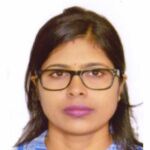 Dr. Rojalin Sahu
Dr. Rojalin Sahu
Center of Research (COR) for Smart Materials
SCHOOL WISE DATA
SCHOOL OF PUBLIC HEALTH
PUBLICATIONS
- Agarwal, S. J., Jena, P. K., Kishore, J., Sahu, L. S., Behera, C. K., Panda, S. K., & Agarwal, V. (2025). Association between vitamin D and dengue severity: A systematic review and meta-analysis protocol. Journal of Communicable Diseases, 57(1), 151–156. https://doi.org/10.24321/0019.5138.202520
- Agarwal, S. J., Satpathy, N., & Jena, P. K. (2024). Reflecting on the Influence of Anti-Tobacco Media Messages on Quit Behaviour in India. Asian Pacific Journal of Cancer Prevention: APJCP, 25(11), 3751–3753. https://doi.org/10.31557/APJCP.2024.25.11.3751
- Agarwal, S., Jena, P., & Agarwal, V. (2025). Re-emergence of iodine deficiency-induced thyroid disorders in children: A comprehensive review and meta-analysis. Endocrine Abstracts, 110, P1127. https://doi.org/10.1530/endoabs.110.P1127
- Ahmad, I., Dehury, R. K., Gadiraju, P., Dehury, P., Samal, J., & Behera, M. R. (2024). Healthcare at Arm’s Length: Exploring the association of distance and household wealth index in Odisha, India: - SHAPE Health Conference In Hong Kong 8-9 July 2024. Asia Pacific Journal of Health Management, 19(2), Article 2. https://doi.org/10.24083/apjhm.v19i2.3895
- Alice, A., Behera, D., Behera, M. R., Patra, S. K., & Mishra, J. (2023). Assessment of sanitation and drinking water facilities among slum households in Bhubaneswar, Odisha—A cross-sectional study. Journal of Family Medicine and Primary Care, 12(3), 484–492. https://doi.org/10.4103/jfmpc.jfmpc_1544_22
- Behera, D., Bohora, S., Tripathy, S., Thapa, P., & Sivakami, M. (2024). Perinatal depression and its associated risk factors during the COVID-19 pandemic in low- and middle-income countries: A systematic review and meta-analysis. Social Psychiatry and Psychiatric Epidemiology, 59(10), 1651–1668. https://doi.org/10.1007/s00127-024-02628-y
- Behera, D., Mohanta, N., Behera, M. R., Tripathy, S., & Kumar, A. (2024). Examining toilet use and menstrual hygiene practices among beneficiary households of Swachh Bharat Abhiyaan (Clean India Mission) in rural areas of Mayurbhanj district of Odisha, India. Journal of Family Medicine and Primary Care, 13(3), 971–976. https://doi.org/10.4103/jfmpc.jfmpc_1424_23
- Behera, M. R., Degge, H. M., Dehury, R. K., & Behera, D. (2023). Improving the Recruitment and Retention of Healthcare Professionals in Rural Areas: Evidence from the medical doctors of six districts of India. Asia Pacific Journal of Health Management, 18(2), Article 2. https://doi.org/10.24083/apjhm.v18i2.1931
- Behera, M. R., Dehury, R. K., Behera, D., & Panda, B. (2024). Exploring the association between household sanitation and women’s menstrual hygiene management in rural Odisha, India. Clinical Epidemiology and Global Health, 30, 101804. https://doi.org/10.1016/j.cegh.2024.101804
- Boban D, Kaur K, Greco S, Pradhan HS, Joshi R, Rakshitha K, Prakash J. The impact of antibiotic resistance training programs on knowledge, attitude, and practice reflection among Indian higher education students. Int J One Health. 2023;9(2):87–94. doi:10.14202/IJOH.2023.87 94.
- Das, A., Ghosal, J., Khuntia, H. K., Dixit, S., Pati, S., Kaur, H., Ota, A. B., Bal, M., & Ranjit, M. R. (2024). Malnutrition and Anemia Among Particularly Vulnerable Tribal Groups of Odisha, India: Needs for Context-Specific Intervention. Indian Journal of Community Medicine: Official Publication of Indian Association of Preventive & Social Medicine, 49(3), 519–528. https://doi.org/10.4103/ijcm.ijcm_452_23
- Das, S., Dwivedi, M., Jena, P., Satpathy, N., & Kishore, J. (2025). Development and validation of a multidimensional tool for Tobacco Dependence Screening (Hindi) in Indian adults. Tobacco Induced Diseases, 23(Suppl 1), A232. https://doi.org/10.18332/852498tivblr
- Das, S., Jena, P. K., Satpathy, N., Kishore, J., Ak, K., Epari, V., & Gadtia, R. (2023). Performance of the Heaviness of Smoking Index in Indian Settings. Cureus, 15(12), e50433. https://doi.org/10.7759/cureus.50433
- Dash K, Nayak S. Exposure to Household Air Pollution from Solid Biomass Fuel and Diabetic Status among Rural Women: A Cross Sectional Study in Odisha. Indian Journal of Environmental Protection. 2023;43(2):127 133.
- Dash, K., Jena, P. K., Patel, K., Behera, M. R., Nayak, S., & Satpathy, S. K. (2023). The Indian Epidemiological Evidences on Household Air Pollution and Respiratory Health Outcomes. Journal of Health Management, 25(4), 761–771. https://doi.org/10.1177/09720634231167034
- Dash, K., Jena, P. K., Pattnaik, J. I., Mishra, S., & Ravan, J. R. (2024). Profile of cognitive deficits among children residing in areas with high ambient air pollution in Odisha. Industrial Psychiatry Journal, 33(2), 396–400. https://doi.org/10.4103/ipj.ipj_337_24
- Degge, H. M., Olorunsaiye, C. Z., Laurenson, M., Hayter, M., Behera, D., & Behera, M. R. (2024). Social reintegration of fistula survivors in North Central Nigeria: A case for rehabilitation. Health Care for Women International, 45(12), 1426–1445. https://doi.org/10.1080/07399332.2023.2283424
- Dehury, R. K., Ahmad, I., Behera, M. R., Manchana, V., Dehury, P., Behera, D., & Vaz E Desouza, N. (2024). Genesis of People’s Medicine Centre (PMC) for popularisation of generic medicine: A critical qualitative inquiry. Exploratory Research in Clinical and Social Pharmacy, 14, 100455. https://doi.org/10.1016/j.rcsop.2024.100455
- Dehury, R. K., Ahmad, I., Behera, M. R., Samal, J., Manchana, V., Mohammed, J., Dehury, P., Behera, D., Desouza, N. V. e., & Dondapati, A. (2025). Assessment of out-of-pocket (OOP) expenditures on essential medicines for acute and chronic illness: A comparative study across regional and socioeconomic groups in India. BMC Public Health, 25(1), 373. https://doi.org/10.1186/s12889-025-21312-7
- Dehury, R. K., Dehury, P., Sripathi, N., Acharyulu, G., Behera, M. R., & Neeragatti, S. (2023). Health Sector Development in India: An Account from Bhore Committee 1946 to National Health Policy 2017. Journal of Development Policy and Practice, 8(2), 209–242. https://doi.org/10.1177/24551333231163666
- Dehury, R. K., Samal, J., Behera, M. R., Ahmad, I., & Dehury, P. (2023). Ayushman Bharat: An Account of Roles and Responsibilities of Stakeholders toward Universal Health Coverage. Journal of Datta Meghe Institute of Medical Sciences University, 18(4), 900. https://doi.org/10.4103/jdmimsu.jdmimsu_674_23
- Dehury, R. K., Samal, J., Raza, A., Cautinho, S., Behera, M. R., & Dehury, P. (2023). Can the National Health Policy 2017 Strengthen the National Health System and Improve the Health of the Indian Populace? Journal of Health Management, 25(2), 232–239. https://doi.org/10.1177/09720634231175748
- Dhawan, D., Kikut-Stein, A., Pinnamaneni, R., McCloud, R., & Viswanath, K. (2025). Can we convince the unvaccinated to vaccinate: lessons from COVID-19 vaccination. BMC public health, 25(1), 1689. https://doi.org/10.1186/s12889-025-22911-0
- Dubey, P., Shukla, S., Agarwal, S. J., Satpathy, N., & Jena, P. K. (2025). Tobacco Control Scale (TCS) for Tobacco Control Policy Analysis of India. Asian Pacific journal of cancer prevention : APJCP, 26(6), 1865–1867. https://doi.org/10.31557/APJCP.2025.26.6.1865
- Ghosal, J., Bal, M., Das, A., Panda, B., Ranjit, M., Behera, M. R., Kar, S., Satpathy, S. K., Dutta, A., & Pati, S. (2024). To leave no one behind: Assessing utilization of maternal newborn and child health services by all the 13 particularly vulnerable tribal groups (PVTGs) of Odisha, India. Health Research Policy and Systems, 22(1), 12. https://doi.org/10.1186/s12961-023-01101-7
- Ghosal, J., Bal, M., Ranjit, M., Das, A., Behera, M. R., Satpathy, S. K., Dutta, A., & Pati, S. (2023). To what extent classic socio-economic determinants explain trends of anaemia in tribal and non-tribal women of reproductive age in India? Findings from four National Family Heath Surveys (1998-2021). BMC Public Health, 23(1), 856. https://doi.org/10.1186/s12889-023-15838-x
- Ghosal, J., Dutta, A., Kshatri, J. S., Das, A., Kanungo, S., Singh, A., Kerketta, S., Ghosal, S., Kaur, H., Bal, M., Ranjit, M., Satpathy, S. K., & Pati, S. (2023). Development, validation & pilottesting of a questionnaire to assess healthcare seeking behaviour, healthcare service utilization & out-of-pocket expenditure of Particularly Vulnerable Tribal Groups of Odisha, India. The Indian Journal of Medical Research, 157(5), 412–420. https://doi.org/10.4103/ijmr.ijmr_3570_21
- Hasa, V. S., Sahu, S. K., Behera, C. K., Jena, P. K., & Pradhan, S. (2024). A Case of Chronic Granulomatous Disease Masquerading As Tubercular Lymphadenitis in an Infant. Cureus, 16(7), e64069. https://doi.org/10.7759/cureus.64069
- Hassen, H. M., Behera, M. R., Behera, D., & Dehury, R. K. (2024). Mental health issues and the association of mental health literacy among adolescents in urban Ethiopia. PloS One, 19(10), e0295545. https://doi.org/10.1371/journal.pone.0295545
- Jena, M., Panda, B., Behera, D., Mohanty, S., & Behera, M. R. (2024). Water, sanitation, and hygiene (WASH) practices of mothers and the health status of under-five children: A study from Rural Nayagarh, Odisha. Journal of Water and Health, 22(7), 1293–1305. https://doi.org/10.2166/wh.2024.096
- Jena, P. K., Agarwal, S. J., Kishore, J., & Sahu, L. S. (2025). Free-roaming dog versus stray dog: Which is better terminology for rabies control? Journal of Communicable Diseases, 57(1), 185–190. https://doi.org/10.24321/0019.5138.202523
- Jena, P. K., Okoye, P. C., Patel, A., Satpathy, N., Kamsa-ard, S., Mohapatra, D., Mangoti, S., Nyirenda, E., Desta, G. B., & Justin, E. K. (2024). Association between the heaviness of smoking index (HSI) and quit attempts and quit intentions among cigarette smokers in eight African countries. Discover Public Health, 21(1), 208. https://doi.org/10.1186/s12982-024-00331-6
- Jena, P. K., Patel, A., Kishore, J., Yadav, A., Satpathy, N., Samal, S., Garnaik, A., Sahu, M., Das, S., & Sahoo, S. (n.d.). Tobacco Imagery in Movies and Web Series Streaming in India and Their Compliance With the Recent Anti-tobacco Rules for Over-the-Top (OTT) Platforms. Cureus, 16(3), e55730. https://doi.org/10.7759/cureus.55730
- Jena, P., Kishore, J., Kaur, J., Satpathy, N., Mishra, A., Kavitha, A. K., & Patel, A. (2025). Age-period-cohort analysis of daily smoking trends in Turkey using Global Adult Tobacco Survey data: Insights for effective tobacco control policies. Tobacco Induced Diseases, 23(Suppl 1), A721. https://doi.org/10.18332/852498tivblr
- Kar, S., Menberu, M., Behera, M. R., & Sahu, K. S. (2023). Loss of employment and social stigma emerge proxy determinants of patient satisfaction in tuberculosis management under the National Tuberculosis Elimination Program: Reports from a single-center direct observation therapy strategy center in Bhubaneswar, Odisha. Indian Journal of Public Health, 67(2), 339–340. https://doi.org/10.4103/ijph.ijph_1215_22
- Kar, S., Menberu, M., Priyadarshini, P., Sahu, K. S., & Behera, M. R. (2023). Community-friendly tool to assess patient satisfaction in tuberculosis programme in the covid pandemic period; Bhubaneswar; India. The Indian Journal of Tuberculosis, 70(4), 483–488. https://doi.org/10.1016/j.ijtb.2023.04.015
- Kishore, J., Kaur, J., Satpathy, N., Jena, P. K., & Venkatarao, E. (2023). The Indian ban on loose cigarettes. Tobacco Induced Diseases, 21, 148. https://doi.org/10.18332/tid/172515
- Kumar, S., Bhoi, P., Gharat, M. S., & Mohanta, G. P. (2025). Developing a competency assessment framework for pharmacists in primary health care settings in India. PLOS One, 20(3), e0316646. https://doi.org/10.1371/journal.pone.0316646
- Mishra, A., Jena, P. K., & Panda, S. K. (2025). The diagnostic performance of mean neutrophil volume in neonatal sepsis: A systematic review and meta-analysis. Pediatrics and Neonatology, 66(1), 71–75. https://doi.org/10.1016/j.pedneo.2024.03.007
- Mishra, J., Behera, M. R., Mitra, R., Samanta, P., Mahapatra, P. K., & Kar, S. (n.d.). Prevalence and Impact of Internet Addiction Disorder Among Adolescents and Young Adults. https://doi.org/10.2174/0118749445345806241010081642
- Mishra, J., Samanta, P., Panigrahi, A., Dash, K., Behera, M. R., & Das, R. (2023). Mental Health Status, Coping Strategies During Covid-19 Pandemic Among Undergraduate Students of Healthcare Profession. International Journal of Mental Health and Addiction, 21(1), 562–574. https://doi.org/10.1007/s11469-021-00611-1
- Mohanty, P., Kishore, J., Acharya, G. C., Mohanty, I., Patnaik, L., Bhowmik, B., Sahoo, M., Satpathy, N., Sahoo, P. K., & Jena, P. K. (n.d.). Utilization of Ayurveda, Yoga, Naturopathy, Unani, Siddha, and Homoeopathy (AYUSH) Practitioners’ Services Among Older Adults: Results From the Longitudinal Aging Study in India. Cureus, 16(6), e62192. https://doi.org/10.7759/cureus.62192
- Mohanty, S., Behera, D., Tripathy, S., Jena, M., Behera, M. R., & Panda, B. (2024). Prevalence, risk factors, and parental perspectives of dental caries in children in Odisha: A mixed-method study. Clinical Epidemiology and Global Health, 29, 101748. https://doi.org/10.1016/j.cegh.2024.101748
- Mohapatra, S., Jena, P. K., & Satpathy, N. (2025). Assessment of compliance with Cigarettes and Other Tobacco Products Act (COTPA), 2003 in Bhubaneswar, Odisha. Tobacco Induced Diseases, 23(Suppl 1), A717. https://doi.org/10.18332/852498tivblr
- Nayak, B. S., Surapaneni, K., Sahu, P. K., Bhoi, P., Dhananjay, K. V. N., Silambanan, S., Silvia, C. R. W. D., Nayak, D., Nagendra, K., Naidu, M. B., Nayak, A. S., Nayak, B. S., Surapaneni, K., Sahu, P. K., Bhoi, P., Dhananjay, K. V. N., Silambanan, S., Silvia, C. R. W. D., Nayak, D., … Nayak, A. S. (2022). The mental health of the health care professionals in India during the COVID-19 pandemic: A cross-sectional study. AIMS Medical Science, 9(2), Article medsci-09-02-011. https://doi.org/10.3934/medsci.2022011
- Nayak, G., Ghosal, S., Ghosal, J., & Dutta, A. (2023). What causes concordance of hypertension between spouses in India? Identifying a critical knowledge gap from a nationally representative cross-sectional sample of 63,020 couples aged 15 + years. BMC Public Health, 23(1), 1434. https://doi.org/10.1186/s12889-023-16379-z
- Nayak, G., Kavitha, A. K., Satpathy, N., Mohapatra, I., Epari, V., Kishore, J., Jena, P. K., Mohanty, P., Panda, S., Behera, C., & Singh, A. (2023). Gendered Pattern and Predictors of Tobacco use in India: Evidence from the Second Round of Global adult Tobacco Survey. Indian Journal of Community Medicine: Official Publication of Indian Association of Preventive & Social Medicine, 48(2), 241–249. https://doi.org/10.4103/ijcm.ijcm_102_22
- Negi, S., Tripathy, S., Sahoo, K. C., Shamim, M. A., Kumar, D., Mehta, V., & Behera, D. (2024). Menstrual cup adoption among reproductive age women in India: A systematic review and meta-analysis. Women & Health, 64(8), 648–661. https://doi.org/10.1080/03630242.2024.2394772
- Panda, B., Zoheb, M., Panda, N., Rath, J., & Pani, S. R. (2024). Health System Resilience and Sustainability in India - Odisha’s Strategies on Human Resources Management during COVID-19: - SHAPE Health Conference In Hong Kong 8-9 July 2024. Asia Pacific Journal of Health Management, 19(2), Article 2. https://doi.org/10.24083/apjhm.v19i2.3905
- Panda, N., Desaraju, S., Panigrahy, R. P., Ghosh, U., Saxena, S., Singh, P., & Panda, B. (2024). Menstrual health and hygiene amongst adolescent girls and women of reproductive age: A study of practices and predictors, Odisha, India. BMC Women’s Health, 24(1), 144. https://doi.org/10.1186/s12905-024-02894-7
- Panda, S. K., Mishra, A., & Jena, P. K. (2023). Agreement between Noninvasive Hemoglobin and Laboratory Hemoglobin Measurements in Neonates: A Systematic Review and Meta-Analysis. Neonatology, 120(1), 24–32. https://doi.org/10.1159/000526100
- Parida, N. R., Jena, D., Pani, S. K., Dash, D. N., Bharti, D., Daoun, A., Giri, V. V., & Behera, M. R. (2024). Climate change and cropping pattern in Keonjhar District of Odisha, India. Multidisciplinary Science Journal, 6(6), 2024109–2024109. https://doi.org/10.31893/multiscience.2024109
- Pradhan, H. S., & Mappillairaju, B. (2025). Profile of risk factors for noncommunicable diseases among the migrants of Santal tribe residing in Bhubaneswar City, Odisha, India. National Journal of Community Medicine, 16(5), 466–474. https://doi.org/10.55489/njcm.160520255264
- Pradhan, H. S., & Mappillairaju, B. (2025). Tobacco use as a risk factor of non communicable diseases among the migrants of Santal tribe in Bhubaneswar city, Odisha, India.South Eastern European Journal of Public Health, 26, 697–707. https://doi.org/10.70135/seejph.vi.3726
- Prassanna, T.A., Dehury, R. K., & Behera, M. R. (2024). Access to Essential Medicines in India: The role of innovations, patents, and intellectual property rights. Asia Pacific Journal of Health Management, 19(3), Article 3. https://doi.org/10.24083/apjhm.v19i3.1697
- Sahoo, R. K., Sahoo, K. C., Dash, G. C., Kumar, G., Baliarsingh, S. K., Panda, B., & Pati, S. (2024). Diagnostic performance of artificial intelligence in detecting oral potentially malignant disorders and oral cancer using medical diagnostic imaging: A systematic review and meta-analysis. Frontiers in Oral Health, 5, 1494867. https://doi.org/10.3389/froh.2024.1494867
- Sahoo, S., Behera, M. R., Mishra, B., Kar, S., Sahoo, P., Sahoo, N., & Biswal, S. (2024). Microbial Diversity and Resistome in Milk of Cows with Subclinical Mastitis in a Coastal District of Odisha, India. Indian Journal of Microbiology, 64(4), 1627–1636. https://doi.org/10.1007/s12088-024-01198-6
- Sahoo, S., Behera, M. R., Mishra, B., Sahoo, P., & Kar, S. (2023). Antibiotic-resistant bacteria in bovine milk in India. Journal of Advanced Veterinary and Animal Research, 10(1), 21–29. https://doi.org/10.5455/javar.2023.j648
- Satpathy, N., Jena, P. K., Epari, V., Yadav, A., Jena, S., Pradhan, S. P., & Dash, S. (2023). Health Warnings on Tobacco Packages: A Compliance Assessment Study Around Educational Institutions in Bhubaneswar, India. Cureus, 15(12), e51206. https://doi.org/10.7759/cureus.51206
- Satpathy, N., Jena, P. K., Sahoo, M., Agarwal, S. J., Raut, K., Sahu, M., Garnaik, A., Samal, S., Bal, S., & Patel, A. (2024). Changes in Smoking Patterns in Turkey Before and After the Ban on Loose Cigarettes: An Ecological Perspective From Global Tobacco Surveillance Data. Cureus, 16(9), e69657. https://doi.org/10.7759/cureus.69657
- Satpathy, N., Jena, P., Kishore, J., Kaur, J., & Das, S. (2025). Ending the puff: An ecological perspective on loose cigarette bans and youth smoking trends across 13 countries. Tobacco Induced Diseases, 23(Suppl 1), A783. https://doi.org/10.18332/852498tivblr
- Satpathy, N., Jena, P., Venkatarao, E., Kishore, J., Yadav, A., Panigrahi, S., & Satpathy, D. K. (2025). Exploiting loopholes: A case study on on-site and digital marketing by a tobacco giant in Eastern India. Tobacco Induced Diseases, 23(Suppl 1), A728. https://doi.org/10.18332/852498tivblr
- Satpathy, N., Jena, P., Yadav, A., Epari, V., Mohanty, V., Ali, M. I., Khare, R., Singh, Y. P., & Pandey, A. K. (2025). Vendor density mapping and compliance assessment with tobacco control laws around schools in Bhubaneswar City-a geo-spatial mapping and observational study. Frontiers in public health, 13, 1410114. https://doi.org/10.3389/fpubh.2025.1410114
- Satpathy, N., Pradhan, H. S., Sarangi, S., Epari, V., Jena, P. K., Dash, S., Mohanty, D. P., & Mishra, P. (n.d.). Prevalence and Assessment of Knowledge, Attitudes, and Practices of Tobacco Use Among Medical and Dental Students in Bhubaneswar, Odisha. Cureus, 16(4), e58617. https://doi.org/10.7759/cureus.58617
- Satpathy, N., Rao, E. V., & Jena, P. K. (2024). India’s progressive step: Regulating tobacco on Over-the-Top streaming platforms. Tobacco Prevention & Cessation, 10(January), 1–2. https://doi.org/10.18332/tpc/181371
- Shukla, S., Agarwal, S. J., Dubey, P., & Jena, P. K. (2025). Challenges in Methodology and Data Reporting: Reflections on a Cholangiocarcinoma Study. Asian Pacific Journal of Cancer Prevention: APJCP, 26(1), 1–3. https://doi.org/10.31557/APJCP.2025.26.1.1
- Shukla, S., Agarwal, S. J., Dubey, P., & Jena, P. K. (2025). Refining Tobacco Control Research: Commentary on Smoking Initiation in Jordan. Asian Pacific journal of cancer prevention : APJCP, 26(4), 1107–1108. https://doi.org/10.31557/APJCP.2025.26.4.1107
- Sichalwe, M. M., Behera, M. R., Behera, D., Dehury, R. K., & Degge, H. (2023). Knowledge and practice of complementary feeding among mothers in Dar-es-Salaam, Tanzania: Community-based cross-sectional study. Clinical Epidemiology and Global Health, 24, 101430. https://doi.org/10.1016/j.cegh.2023.101430
- Sichalwe, M. M., Mwesiga, C. C., Kessy, A. T., & Behera, M. R. (2024). Factors affecting utilization of outpatient healthcare services among the elderly population in Butiama and Musoma districts, Tanzania: A community-based cross-sectional study. PloS One, 19(7), e0304687. https://doi.org/10.1371/journal.pone.0304687
- Singh, B., Dutta, V., Singh, S., & Pundit, P. (2024). Diagnostic insights from chemometric analysis of hemogram inflammatory indexes in male smokers with and without asthma or chronic obstructive pulmonary disease. International Journal of Laboratory Hematology, 46(4), 627–636. https://doi.org/10.1111/ijlh.14264
- Singh, B., Singh, S., Bhatia, J. K., Kapoor, R., & Bhatia, K. (2023). Role of Matrix Degradation, Oxidative Stress, Inflammation & Trace Elements in COVID-19 Patients: A Multivariate Study from India. Indian Journal of Clinical Biochemistry: IJCB, 38(2), 193–203. https://doi.org/10.1007/s12291-022-01059-3
PhD Scholars Achievements
𝐆𝐥𝐨𝐛𝐚𝐥 𝐑𝐞𝐜𝐨𝐠𝐧𝐢𝐭𝐢𝐨𝐧 𝐟𝐨𝐫 𝐈𝐧𝐝𝐢𝐚𝐧 𝐄𝐧𝐝𝐨𝐜𝐫𝐢𝐧𝐨𝐥𝐨𝐠𝐲 𝐑𝐞𝐬𝐞𝐚𝐫𝐜𝐡!
Dr. Vishal Agarwal, Senior Resident, Department of Endocrinology, KIMS, KIIT presented his original research at the prestigious ESE-ESPE 2025 Joint Meeting held in Copenhagen, Denmark.
𝐑𝐞𝐬𝐞𝐚𝐫𝐜𝐡 𝐓𝐢𝐭𝐥𝐞 :
“Efficacy of treatment with combination dapagliflozin and metformin versus metformin alone in overweight and obese women with polycystic ovary syndrome: A randomized controlled trial”
His study received strong appreciation from leading international experts and sheds light on a promising therapeutic approach to PCOS—a complex and widespread endocrine disorder in women.
This achievement reflects the Department of Endocrinology’s unwavering commitment to research excellence, under the leadership of Prof. Dr. Sambit Das (Head of Department), Prof. Dr. Arun Choudhury, Prof. Dr. Dayanidhi Meher, Dr. Devadarshini Sahoo (Associate Professor), Dr. Sandeep Kumar Sahu (Associate Professor)
two faculty members from the KIIT School of Mass Communication - KSMC at IAMCR 2025, hosted by the Wee Kim Wee School of Communication and Information, 𝐍𝐚𝐧𝐲𝐚𝐧𝐠 𝐓𝐞𝐜𝐡𝐧𝐨𝐥𝐨𝐠𝐢𝐜𝐚𝐥 𝐔𝐧𝐢𝐯𝐞𝐫𝐬𝐢𝐭𝐲, 𝐒𝐢𝐧𝐠𝐚𝐩𝐨𝐫𝐞.
🔹 Dr. Bidu Bhusan Dash presented his research at the IAMCR Pre-Conference held at the National University of Singapore (NUS), engaging in vital academic discourse leading up to the main event.
🔹 Dr. Sananda Mukherjee showcased two impactful research papers during the main conference:
“Stories of Survival and Resistance: Indian Environmental Documentaries as Catalysts for Justice and Advocacy”
“Bridging Faith and Health: Harmonizing Cultural Heritage and Public Safety at the Maha Kumbh” in collaboration with Mr. Arjun Chatterjee and Prof. Bharti Gupta.
Their participation reflects KSMC’s growing global academic engagement and commitment to research excellence. Congratulations to the team for representing KIIT on an international stage!


